

Interesting Chemistry Topics for Seminar Presentation

Chemistry Topics for Seminar Presentation
- COVID-19: Why Chemistry Matters
- COVID‐19 in Chemical Science Perspective
- The Chemistry of the COVID-19 Antigen Test
- The Chemical Reactions
- Surface Chemistry: Adsorption and Absorption (PPT)
- Metals, Nonmetals, and Metalloids
- Acid Rain: Acid Deposition
- Advances in ion chromatography
- Air Analysis
- Aliphatic Compounds
- Analytical technique
- BioMolecular Chemistry
- Biomolecule
- Boron Chemistry and Applications to Cancer Treatment
- Boron-Pnictogen Multiple Bonds: Organometallic Alkenes and Alkynes
- Breathe Analysis
- Carbohydrates
- Carbon Capture and Storage
- Carbon Dating
- Catalytic Converters
- CFCs and the Environment
- Charge Transport across the Metal-Molecule Interface
- Chemical Sensor Technologies for Chemical Analysis and Materials Characterization
- Chemistry at the origin of life
- Chemical Elements in the Human Body
- Chemistry of Coffee
- Chemical Reactions in Biological Systems
- Chemical Reactions in the Metabolism
- Chemistry of Diamonds
- Chemistry of Paints
- Chemistry of Warfare
- Chiral Compounds
- Chiral molecules
- Chlorine trifluoride
- Clean Water Supply
- Cleaning Up: Formulation Chemistry
- Coffee: Friend or Foe
- Counterfeit Medicines
- Curare and the case of Mario Jascalevich
- Desalinating Water for future supply
- Desalination
- Detecting Chemicals in the Universe (Astrochemistry)
- Detecting Drug Abuse in Sport
- Drugs in Drinking Water
- Electrochemical fluorination
- Emulsion – Suspension Technology
- Environmental Impact of pH Balance
- Forensic analysis of explosives
- Extraterrestrial molecules
- Fingerprint Detection
- Functional Group
- Graphene- Wonder Material
- Greenhouses Gases
- Hybrid organic/inorganic nanocomposites
- Hybridization
- Hydrocarbons
- Hydrogen Fuel Cells ( Article )
- Hydrogen Fuel Storage
- Hydrogen production from coal gasification
- Insect Repellants
- Isolating Fluorine Gas
- Lanthanide porphyrin complexes with sandwich structures
- Lead in the Environment
- Mass Spectrometry
- Medicinal Applications of Iodine
- Medicinal Properties of Radium
- Mesoporous materials: Synthesis, structure, and properties
- Modern Fibres for future clothing
- Molecular Design of In-Situ Phosphatizing Coatings for Aerospace Primers
- Mohr's Salt
- Molecule-based magnetic materials and high-spin molecules
- Nanograin Magnetoresistive Manganite Coatings
- Nanomedicines
- Nanoparticle Plasmons
- Nanosilver in the environment
- Nanotechnology: molecular-scale machines.
- New advances in crystal engineering
- New advances in supramolecular chemistry
- New biomaterial for scar healing
- New Chemistry of Superelectrophiles
- A new generation of antimalarials
- New materials for lightweight aircraft
- Nitric oxide as a neurotransmitter:
- Nitrous OxideParticle Size Analysis
- Novel surface analytical techniques
- Ocean Acidification
- Organic Chemistry
- Ozone: Protector or Polluter
- Paracetamol
- People on the Periodic Table
- Photocatalysts for Self-Cleaning Surfaces
- Photodynamic Therapy
- Photoreduction of Metal Ions
- Photoresist chemistry for X-ray lithography
- Phyto Chemistry
- Physical chemistry of surface phenomena
- Polymorphism in the Pharmaceutical Industry
- Preparing and Characterising Nanoparticles
- Prevention of iron corrosion by amine-quinone polymers
- Quasicrystals
- Seaweed extracts to improve battery performance
- Seeing structure: atomic-scale molecular imaging
- Smart Clothing
- Smart Glass
- Solid Oxide fuel cells
- Stereochemical nonrigidity in organometallic chemistry
- Structural characterization of carbon nanomaterials
- Surfactant, Colloids, and Interfaces
- Synthesis of Ammonia
- Synthesis of Carbon Nanotubes (CNTs) on porous Si
- Synthetic Chemistry
- Thallium Poisoning
- The Artificial Leaf
- The chemistry of early life
- The chemistry of smell
- The Discovery of DNA
- The Science of Cocktails
- Thin-film modeling of catalysts
- Use of the Hadamard transform in chemistry
- Uses of Electrochemical Cells
- Violating the Octet Rule: the Chemistry of Hypervalent Bonds
- Water from hydrofracking
- Water-Based Polymers
- Methamphetamine Synthesis
- Human digestion process
- Hemoglobin and Oxygen Transportation
- Pollutants Chemistry
- VSEPR Theory
- Explosives: TNT and nitroglycerine
- Why Alchemists Seeks Philosopher’s Stone
- Chemists Who Are Nobel Prize Awardees
- How Chemical Weapons Become Main Threat for War
- How to Choose Quality Water
- Making a Kid Interested in Chemistry
- Hair Biochemistry and Its Process
- Effects of Lack of Chemical Elements in a Human Body
- Safety Precautions for Chemical Products
- Like on Facebook
- Follow on Twitter
- Follow on Slideshare
- Follow on Pinterest
- Subscribe on Youtube
Trending Seminar Topics
- 100+ Seminar Topics for Youth, Teenagers, College Students Young people are on a never-ending quest for transcendence, which drives them to want to improve the environment, countries, communities,...
- 100 PowerPoint Presentation Topics in Hindi (Download PPT) विद्यार्थियों के लिए प्रेजेंटेशन का महत्व प्रेजेंटेशन (presentation) देना शैक्षणिक पाठ्यक्रम का एक महत्वपूर्ण व्यावहारिक पाठ्यक्रम है, ...
- 30+ Technical Seminar Topics for Presentation: Latest Tech Trends Technology is rapidly evolving today, allowing for faster change and progress and accelerating the rate of change. However, it is not just t...
- 100+ Interesting Biology Presentation Topics with PPT Biology Topics for Presentation & Research Biology is a topic that every school student studies and university student who does major in...
- 100 Interesting Fun Topics for Presentations Fun Topics for Presentations We have prepared for you a fantastic collection of fun topics for presentation with relevant links to the artic...
Recent Seminar Topics
Seminar topics.
- 💻 Seminar Topics for CSE Computer Science Engineering
- ⚙️ Seminar Topics for Mechanical Engineering ME
- 📡 Seminar Topics for ECE Electronics and Communication
- ⚡️ Seminar Topics for Electrical Engineering EEE
- 👷🏻 Seminar Topics for Civil Engineering
- 🏭 Seminar Topics for Production Engineering
- 💡 Physics Seminar Topics
- 🌎 Seminar Topics for Environment
- ⚗️ Chemistry Seminar Topics
- 📈 Business Seminar Topics
- 👦🏻 Seminar Topics for Youth
Investigatory Projects Topics
- 👨🏻🔬 Chemistry Investigatory Projects Topics
- 📧 Contact Us For Seminar Topics
- 👉🏼Follow us in Slideshare
Presentation Topics
- 🌍 Environment Related Presentation Topics
- ⚗️ Inorganic Chemistry Presentation Topics
- 👨🏻🎓 General Presentation Topics
- 🦚 Hindi Presentation Topics
- 🪐 Physics Presentation Topics
- 🧪 Chemistry: Interesting Presentation Topics
- 🌿 Biology Presentation Topics
- 🧬 Organic Chemistry Presentation Topics
Speech Topics and Ideas
- 🦁 Informative and Persuasive Speech Topics on Animals
- 🚗 Informative and Persuasive Speech Topics on Automotives
- 💡 Ideas to Choose Right Informative Speech
- 👩🏻🎓 Informative Speech Topics For College Students
- 🔬 Informative Speech Topics on Science and Technology

The 10 Best Chemistry Topics Ideas For Research Papers and Presentations
Find your perfect school.
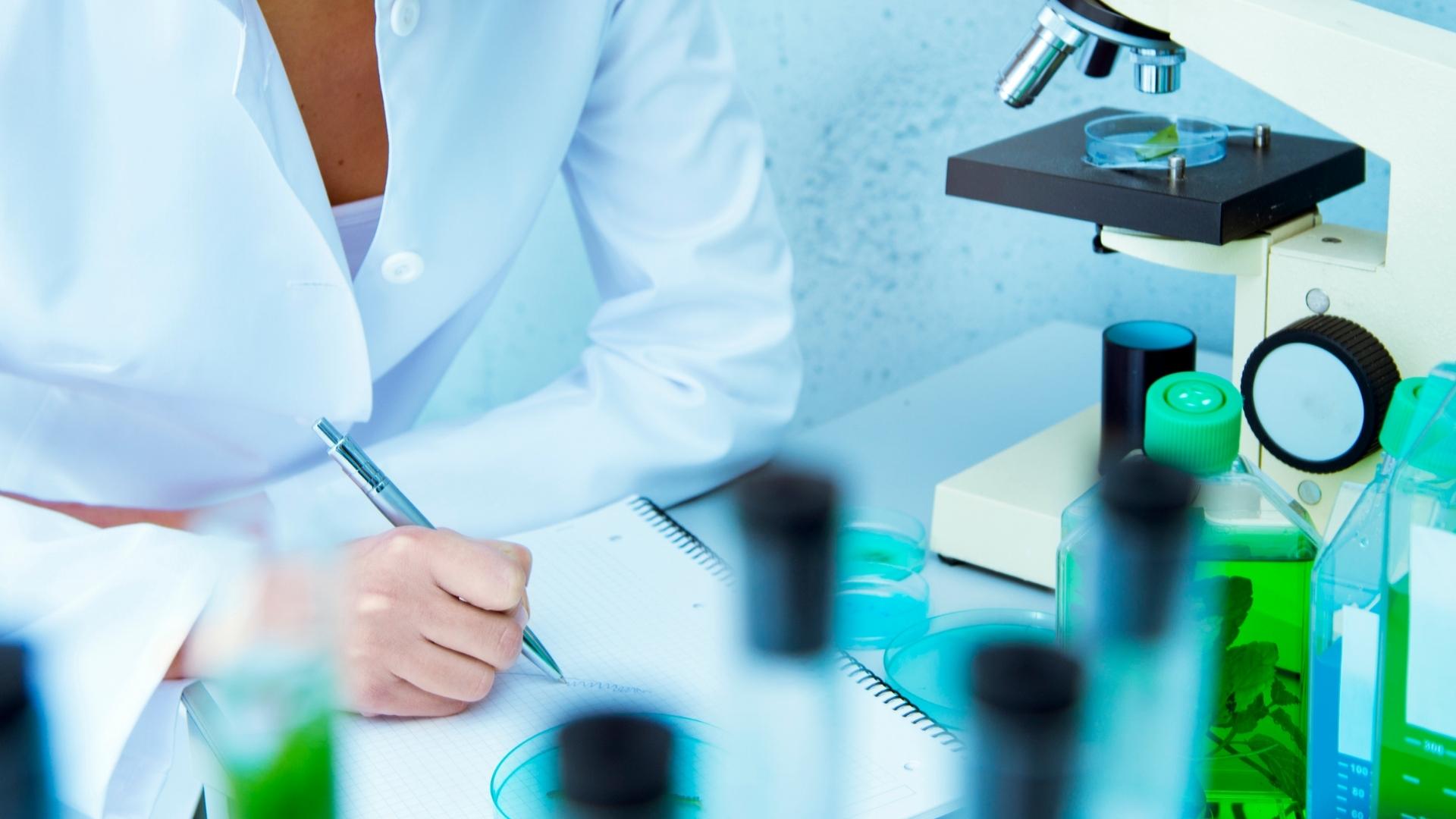
While most students are more concerned with how to write an effective chemistry research paper or presentation, finding organic chemistry research topics can be challenging for some. Many students simply choose a topic for their Chemistry research just for the sake of it. However, it isn’t the most effective way to succeed in this endeavor.
Given that research work should be authentic, finding a topic that best fits one’s interest and passion is significant. Choosing interesting chemistry topics that don’t align with a student’s objectives and interest is counterproductive and will only demotivate them in the long run.
Never underestimate the importance of choosing the best Chemistry research topic. From chemical equations and chemical kinetics to synthetic molecules and molecular dynamics, topics should be feasible and interesting enough to help students outline the basics of their research works.
Take a look: The Highest Paying Jobs With A Trade School Education
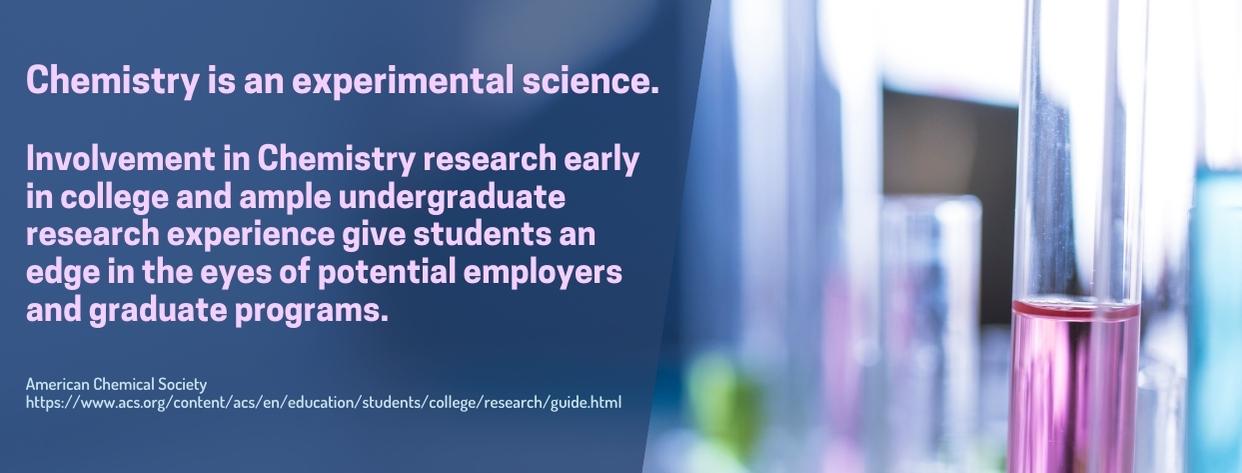
Chemistry Projects Topics ARE Tough!
Crafting a chemistry research paper can be daunting for many college students. Even high school students face the same challenge, too! Failure to grasp guidelines, writing styles and formatting, tight deadlines, and lack of resources are some of the roadblocks to completing an excellent research project.
It is not uncommon either for students to struggle with deciding on the chemistry research paper topics and creating an effective presentation, thesis, and similar research on the subject.
Sorting through the available chemistry research topics entails an in-depth understanding of the specific aspect of your project.
Best Chemistry Research Topics
Are you pursuing a Chemistry-related topic for your graduate studies or projects? Here are the ten best Chemistry topic ideas for research papers and presentations.
Medicinal Chemistry

Medicinal Chemistry is a unique topic in the field of Chemistry, discussing the synthesis, development, and design of various pharmaceutical drugs. Since this type of Chemistry topic has made significant contributions in the healthcare field, Medicinal Chemistry is one of the best Chemistry topics for presentations and research papers. Developing new treatments and drugs is crucial, with many diseases and viruses emerging.
Delving into various medicinal chemistry topics helps students become updated with the latest trends in drug formulation. If a career in the pharmaceutical industry excites you, choosing this type of Chemistry topic for your research work is an excellent option.
Sample Medicinal Chemistry Topics:
- Medicinal Chemistry Theories and Concepts
- Is Aspartame Better Than Sugar?
- Drug Design Approaches
Environmental Chemistry
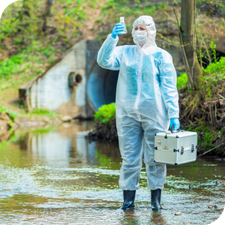
If you’re an environmental advocate or want to find ways to save the environment, choosing Environmental Chemistry research topics is a suitable research initiative. With biodiversity, extreme weather changes, and pollution, the importance of pursuing further studies in this field is becoming more significant.
This Chemistry-related topic helps students explore various concepts in environmental management, pollution/contamination reduction, and environmental impact.
Environmental Chemistry also develops students’ skills in finding sustainable solutions to farming, agriculture, transportation, real estate, and healthcare. Various Environmental Chemistry subjects explore the significance of governments, organizations, and individuals as part of the collective effort to preserve the natural environment.
Sample Environmental Chemistry Topics:
- Petroleum Products And The Dangers Of Using Them
- Chemicals and Heavy Metals Found In Water
- Environmental Disasters: Oil Spills
Physical Chemistry
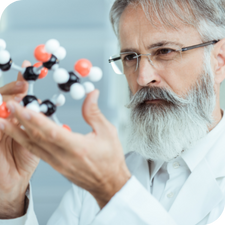
Do studying matter’s component and behavior at a molecular or atomic level interest you? Physical Chemistry research topics should highlight your presentation or research work. It is an excellent field for students who enjoy working with laboratory equipment and instrumentation, including a strong thirst for knowledge on how things work at the atomic level.
Graduates pursuing this topic may have to hone their mathematical aptitudes to succeed in their research. They utilize statistics and mathematical analysis to discover significant information about processes, materials, and compounds. Developing and solving mathematical equations and conducting simulations are also needed, especially when predicting compounds are part of their study.
Sample Physical Chemistry Topics:
- Physical Chemistry and Photons
- Concept of Quantum Chemistry
- Correlations Between Heat & Chemical Reactions
Inorganic Chemistry
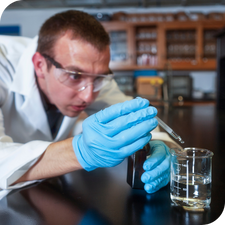
Inorganic Chemistry primarily deals with the study of chemical compounds that don’t require carbon-hydrogen properties, reactions, and processes. This type of Chemistry field lets students explore more about salts, bases, acids, and oxides. They determine a variety of ways in which these substances can be modified, used, and improved. Professionals in the field of Inorganic Chemistry have similar roles in the field of physics and material science.
If you are genuinely interested in Organometallic Chemistry, Inorganic Chemistry research topics are a great starting point. Since the concept is unpopular, the demand for professionals in this track is growing. You’ll be one of the professionals who’ll help discover an ever-expanding list of organometallic compounds and use them in developing innovative products.
Sample Inorganic Chemistry Topics:
- Sulfuric Acid and Its Industrial Applications
- Electronic, Magnetic, and Mechanical Properties of Alloys and Metals
- Does Ammonia Have Positive Impact On Weightlifters?
Organic Chemistry

While inorganic chemistry deals with non-carbon-containing compounds, Organic Chemistry is a diverse topic that studies the preparation, reaction, properties, and structure of carbon-containing elements. Most organic compounds contain hydrogen, carbon, oxygen, nitrogen, or sulfur. Its diversity makes it beneficial for students to specialize in more than one aspect of organic chemistry.
If you enjoy spending much of your studies exploring how to develop new compounds, delving into these topics for your presentations, capstone, or thesis work is essential. It is one of the most diverse aspects of Chemistry found in the cosmetic, pharmaceutical, food, agriculture, and healthcare fields.
Although studying this Chemistry topic can be challenging, the rewards are worth it since graduates will find abundant career opportunities in various industries.
Sample Organic Chemistry Topics:
- Chemical Properties of Hydrocarbon Fuels
- Improving Shelf Life and Retaining Food Quality
- The Chemistry of Food Dyes
Nanochemistry
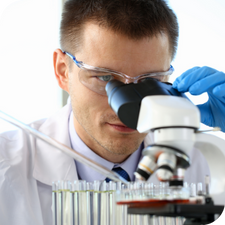
Although it may appear pretty new, Nanochemistry has gained popularity in the market, considering the advancement of technology has boomed. If you love studying chemistry in combination with nanoscience concepts, this is an interesting Chemistry topic for you.
This Chemistry-related subject helps students discover various methods of preparing and assembling minuscule particles with mechanical, optical, magnetic, and chemical substances to form larger molecules. Its concept highlights using a single atom and transforming it into a more extensive, innovative material.
The advancements made by nanochemistry have protected airplanes from lightning strikes, coated cars for privacy, and helped humans prevent skin cancer through sunscreen lotions. Pursuing Nanochemistry topics is an excellent start if you are interested in adding many breakthroughs in this field.
Sample Nanochemistry Topics:
- Different Types of Nuclear Weapons
- Applications of Nanochemistry
- Applications of Nanochemistry In The Military
Biomolecular Chemistry
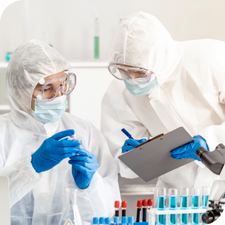
Do you love working in the field of chemical chemistry, agriculture, or food science? It would be best if you prioritized any topics related to Biomolecular Chemistry . This field helps students expand their knowledge and skills in studying chemical processes associated with living organisms.
The study combines chemistry and biology in a more laboratory-extensive setting. Delving into these topics helps one understand the chemical reactions, compositions, and structures of a variety of substances in living systems.
Some disciplines students can choose from include biophysical chemistry, immunochemistry, molecular biology, and bio-organic chemistry. Students find ways to prolong food products’ quality and shelf life in the food science industry. Apart from that, these topics can help students become more established in veterinary medicine, dentistry, and medical fields.
Sample Biomolecular Chemistry Topics:
- Cancer Biology and Pathology
- Role of Intestinal Parasites in Human Health and Diseases
- Adverse Effects of mRNA Vaccines
Controversial Chemistry
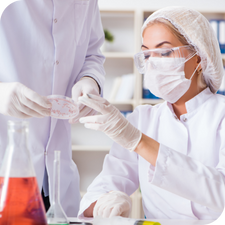
Students can find numerous things to research when it comes to Chemistry. However, if you’re looking for non-traditional ways or uncommon topics to study, consider a number of Controversial Chemistry research topics. One of the popular subjects in this category includes organic synthesis or the process of replicating a living organism and creating an identical component in a laboratory.
These topics help students discover the process of replicating some of the most controversial molecules in a laboratory facility and integrate synthetic strategies and equipment to develop variations of these molecules.
Since these initiatives revolve around medicine and biology, clinical advancements often benefit from controversial chemistry topics. Gene therapy, for instance, has opened several discoveries and discussions, making it one of the most uncommon ways to cure various diseases.
Sample Controversial Chemistry Topics:
- Synthetic Pesticides, Herbicides, and Fertilizers: Are They Beneficial?
- Gene Therapy To Treat and Prevent Cancer
- Replication of Synthetic Molecules
Innovative Chemistry

With the latest technological advancements booming nowadays, Innovative Chemistry research topics never run out and significantly impact the healthcare, agricultural, and automotive industries. Besides that, innovative chemistry topics have made state-of-the-art contributions in addressing climate change, pollution, and energy efficiency.
Digging into these topics has transformed existing discoveries to develop more effective devices. Thanks to this topic, cheaper, more environment-friendly dual-ion batteries will soon replace lithium batteries. Batteries made from aluminum, potassium, or sodium will also curb lithium production, addressing the shortage of these materials.
Another product of interest in innovative chemistry topics is rapid diagnostics for testing. Thanks to innovative chemists, different tests are underway to detect diseases and viruses in the most effective and timely manner.
Sample Innovative Chemistry Topics:
- Applications of Nanophotonics in Aeronautics
- Is It Possible To Avoid Pesticides In Agriculture?
- 3D Printing and Its Industrial Uses
Green Chemistry
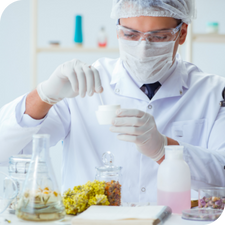
Like environmental chemistry, Green Chemistry is an excellent topic for Chemistry students who are environment advocates. It studies ways to develop sustainable solutions to some of the most critical environmental problems.
Students writing this topic will gain a comprehensive understanding of biodegradability, biocompatibility, composition, structure, and origin of sustainable energy supplies.
Writing any Green Chemistry topics motivates students to develop or redesign manufacturing processes and products to reduce their hazardous impact on the environment and personal well-being. Discovering biofuel, for instance, helps minimize the demand for traditional oil resources and dependence on global oil suppliers.
Given that extreme weather changes, overpopulation, and shortages are rising problems worldwide, students should take advantage of putting effort into developing a variety of sustainable alternatives.
Although it’s a new field, some related discoveries have benefitted many people, including developing non-toxic alternatives to current chemicals.
Sample Green Chemistry Topics:
- Turning Plants Into Biofuel: Is It Possible?
- Understanding The Different Types of Chemical Reactions Through Green Chemistry
- Biomass Energy: Extracting Energy From Grasses
Other specific Chemistry research projects involve biological systems, the human body, and analytical chemistry research–all of which require students to find interesting chemistry topics.
Check this out: The 10 Best Online Associates in Fire Science Degrees
Different Parts of a Chemistry Research Paper
Although every school has its unique Chemistry research work outline, the standard format or information hierarchy is almost identical to many colleges and universities.
Whether you’re writing a presentation or research paper from scratch or hiring a professional writer, here is the standard outline:
Titles should be concise and clear, highlighting the Chemistry topic without unnecessary jargon.
The Abstract section consists of a short but informative summary of the chosen Chemistry research topic. It gives readers a comprehensive overview of the main topic, participants, methodologies, and conclusions. This section is written after the title and often has five or six sentences in a single paragraph.
Introduction
The Introduction is one of the most critical sections of any Chemistry research paper. It gives the impression to readers whether the topic is interesting or not, allowing them to dig deeper into the subject. This section provides background information about the problem or thesis statement, explaining the core terms, the importance of a particular Chemistry topic, and why it is being pursued.
The Body of a research paper is the most diverse section of every Chemistry-related research work. Depending on the writing format or outline, this section can have a variety of alternate headings. Students can have Results, Analyses, Research Methodologies, or Overview as the heading title within the body.
This section can have the arguments to support the thesis statement, highlight the methodology to answer research questions, and contain detailed information regarding the materials used, experimental procedures, and objectives of the research work.
The Conclusion explains the results or data and highlights the connection between the original research question. It also explains why the results are crucial apart from potential implications and new learnings.
Graduate students can also state future research works on chemistry-related topics (or for a different discipline) in the Conclusion section. Mentioning the thesis statement in it is also highly recommended.
Additional Info: The 10 Best Schools For Becoming a Diagnostic Medical Sonographer and Cardiovascular Technician: Degree and Job Info
Malcolm Peralty Chief Editor
- Lab Manager Academy
- Subscribe Today!
- Lab Leadership
- Leadership Skills
Effective Presentations for Chemists and Other Scientists
Boost your career with the skills to develop and deliver a polished presentation..
I still remember the first time I presented a paper for publication in the Analytical Chemistry journal of the Florida Section of the American Chemical Society. This was many years ago, when I was a graduate student at the University of South Florida. I initially prepared a technically enriching speech which would have taken me at least a half day to present, but after what seemed like weeks, I was able to reduce pages and pages of research text down to a five minute presentation. At the time, I had such a terrible fear of public speaking that I read my presentation from index cards in a monotone voice. I was very thankful that I didn’t have to be concerned with my shaky knees or gesturing because no one could see me. The room was totally dark to view the slides — not PowerPoint slides but the Kodak slides of years past.
Though visual aids have changed tremendously since the late ‘60s when I gave my first presentation, the presentation style, in my opinion, has not significantly changed — especially for chemists and other scientists. As a chemist and as a business/computer consultant for many years, I have given and have seen many technical presentations at conferences, at work, and elsewhere. The presentations were generally quite informative, technically enriching, and the presenters were very knowledgeable on the subject matter. However, many of them (and I include my own), were rather unexciting and ineffective. I have also seen many exciting, motivational, and inspirational presentations for the general public and also for the technical audience. You don’t need to be a professional speaker to spice up your presentation but by both knowing and understanding some of the same principles professional speakers use, you can enhance your presentations.
WRITING YOUR SPEECH
If you are doing a presentation, most likely you’ve written a report or submitted an article for publication. Perhaps you have used the text for your speech and created PowerPoint slides to help outline the structure. However, I would suggest you write your speech from scratch with emphasis on simplicity and conciseness.
In my commonsense assessment, speech writing is much different than writing reports or articles for a journal. The brain processes spoken words differently from written words. When we read, we can see whole phrases at a time. As a result, we can instantly understand phrases and sometimes whole sentences (except for those long, drawn-out sentences we sometimes write). We also can go back and reread the text if we must.
However, we process the spoken message instantaneously, one phonetic sound at a time. We mentally accumulate these phonetic sounds in our memory until these sounds make sense. Once we mentally interpret these phonetic sounds into whole sentences, we can move on to the next spoken sentence. For example, if I said, “We mentally accumulate” and stop, you have no idea what I’m attempting to say until I complete the sentence; whereas, in reading this article, you can easily understand the meaning because the whole content is right here on this page. Although the spoken process is immediate, it is a slower process than reading so keep this in mind when writing and delivering your speech.
SIMPLIFYING YOUR MESSAGE
Use short, simple sentences. Your written report will likely contain comprehensive and long, drawn-out sentences describing the details and results of your project which is fine for a report, but rather long and tedious for a speech. It’s important to break down the technical detail into a few short and concise sentences.
For example, in my report, I wrote, “It is useful for our purposes to distinguish between two types of substitution procedures: 1) a true substitution procedure, in which the amount of the metal-DTPA complex added is equal to or greater than the amount of the sought-for metal ion; and 2) a pseudo-substitution procedure, in which only a small amount of the metal-DTPA complex is added to activate the indicator mechanism.” Whew! What a handful of words to say all at once.
For a presentation, I would re-word the sentence to read: “For our purposes it is useful to distinguish between two types of substitution procedures. [pause] One type is a true substitution procedure. In this procedure, the amount of metal-DTPA added is equal to or greater than the amount of the sought-for metal ion. [pause] The second type is called a pseudo-substitution procedure. Only a small amount of the metal-DTPA complex is added to activate the indicator mechanism in this procedure.” Thus, I broke down one long sentence into five shorter sentences.
REDUCING UNNECESSARY VERBIAGE
In the example above, I simplified the sentence structure, but I didn’t rework it to make it more concise. In my workshops I give examples of speeches that I helped rewrite such as, “Let me tell you about Mary Smith. Mary Smith lives…” I changed it to “Ask Mary Smith. She lives…” Not only did I reduce it from ten to five words, it became more active in tone. In essence, be short, concise, and to the point when writing a speech for a presentation.
REFRAINING FROM USING JARGON
As chemists, we use chemical terms, acronyms, and other jargon everyday. These terms are second nature to us, but may not be to others. As the program chair for our Rotary club, I invited the public relations person from the regional water replenishment district to give a talk. During his presentation, he used words and phrases such as micro filtration, groundwater basins, saturated zones, heterogeneous aquifers, and injected recycled water after recharge. I understood the terms and perhaps one or two others, but I’m certain many other members had difficulty understanding the terms and, thus, his talk.
To be effective in your presentation, refrain from using your industry’s jargon, even if you are presenting in front of colleagues. However, if you do, explain the terms in a simple and understandable way.
FOCUSING ON BENEFITS, NOT DATA
In my experience, most scientists focus on technical data. This is natural because this is what you do for a living. You research, you synthesize, you investigate, and you analyze. You then formulate a conclusion based on the data of an investigation. As a result, the presentations are based on the collected evidence. But what are the benefits of your research? Let’s say you have been researching a cure for cancer for years and recently discovered a specific structure in DNA that would prevent all cancers. Of course, all the data and results leading up to the cure are necessary to submit to the science community, but what is more important to the listeners when presenting, the data or the benefits of the research?
For example, what is more valuable for the audience to hear? Data such as “…by doing this and that, we were able to reduce the growth rate of the cancer cells from 90,000 cells per hour down to only 10 cells per day; thereby virtually eliminating the growth of cancer,” or benefits such as “Based on our research; we can save 250,000 lives within the next three months if this DNA alteration is approved.” In essence, benefits emotionalize features (data); thus benefits grab the audience’s attention more than facts and figures.
Overall, if you speak in short, concise sentences, refrain from industry related terminology, and discuss the benefits of your findings; you will give a more effective presentation.
WRITING YOUR CONCLUSION FIRST
Many presenters write their speeches in a logical order; first, they construct the opening, followed by the body (where they add the details and supporting data), and then finish with the conclusion. However, by the time they start writing the conclusion they tend to adapt the conclusion to the supporting data rather than ensuring that the data fits the conclusion. What is your call to action? What concepts do you want to leave the audience with? What is the specific purpose of your talk?
With these questions in mind, develop your conclusion first. For example, if you’re seeking a grant for your colon cancer research, you might end your presentation with “Are you prepared to invest in saving the lives of 250,000 colon cancer patients over the next five years?” By focusing on your closing message, you can then add and arrange the specific details of your talk to support your conclusion, and then create a powerful opening statement based on your conclusion.
STARTING WITH AN ATTENTION-GETTER
How long do we have to grab the audience’s attention? Some have said as little as seven seconds. Others say ten to 15 seconds. Surely, we have no more than 30 seconds to capture our audience’s attention.
Yet, how many times have we seen someone begin with a statement such as “Thank you, Mr. Chairperson, for allowing me to speak this evening. Ladies and gentlemen, I’m honored to be here tonight to discuss this most pressing issue of….” This would take about ten seconds to say. Ten seconds to get to the point. Ten seconds before the audience begins to know, “Why am I here? By then, you may have lost your audience.
Instead, grab the audience’s attention immediately, then, if there’s a need, compliment or thank the organizers and the audience. For example, you may say, “More than one million people die each year of colon cancer. Our research team has developed a procedure to reduce the number of colon cancer deaths by more than 70% over the next five years. Thank you Mr. Chairperson, fellow colleagues, and welcomed guests. We are on the verge of reducing colon cases by introducing…”
MAKING A POINT AND TELLING A STORY
What’s remembered weeks, months, or even years after your presentation? It isn’t the data or the details you presented. It’s the stories. You may wonder how you can incorporate stories in your technical presentation. It can be done and it is powerful when you do it.
Several years ago, I was in network marketing. The company hired two biochemists. Both developed great products, both were very knowledgeable and both gave good presentations. One of them was, in my opinion, the typical presenter. He was very informative giving us a series of data, but quite dry in his delivery. To this day, I don’t recall any information he discussed. On the other hand, the other biochemist told stories and illustrated his points. Fifteen years later, I still remember the picture he verbally drew as he described how the lungs are affected by smoking.
REDUCING AHS, UMS, AND OTHER FILLER WORDS
Though filler words such as “ah,” “um,” and “you know” can be a distraction to the audience, rarely are we consciously aware of making these utterances. But you can become aware and learn to speak and pause without having them infiltrate.
Let me tell you a story to illustrate this point. I saw the 1986 air crash of the AeroMexico DC-9 flight 498 in Cerritos, CA. A single engine Piper Archer crashed into the tail of the DC-9. The airplane lost total control, turned over, and plunged into the Cerritos neighborhood like a bomb. It crashed within two miles of our home and within yards from friends and relatives. My wife was out of state and didn’t experience the disaster. About a month after the crash, my wife and I took a 30-minute walk around a nearby park. After we returned from the walk, I asked her how many planes she heard. She said none. I was so sensitized to the air crash that I had heard 31 aircraft fly over.
Similarly, you can become sensitized to your filler words. First, make a conscious effort to listen to others on TV or talk radio, at work, at seminars, at home — everywhere. Mentally count the number of filler words. As you become aware of others saying them, you will become conscious of your own filler words. Eventually, you will reduce, minimize, and even eliminate your filler words. In fact, you may become so sensitized to filler words that they will become a major distraction when others speak.
ANSWERING QUESTIONS
Have you been to a presentation where the speaker ended with a powerful conclusion, you were excited and ready to take action, and then the presenter asked something like “Do you have any questions?” After a few questions and answers, your excitement from the powerful conclusion waned and you left without taking any action.
Typically, presenters will conclude their presentations and then ask for questions. However, asking questions at the end will generally reduce the impact of a strong conclusion. Then, when should we accept questions?
Some presenters may encourage questions anytime during their presentation; however, they really need to be on top of their presentation to assure that they don’t lose track and complete their presentation on time. This can be a challenge for many — even for the most experienced presenters.
I generally ask for questions after each main topic. Typically, I will have an opening, a body, and a transitional conclusion for each main topic. At the end of each transitional topic, I will call for questions. For example, I may say, “Before continuing, do you have any questions?” After accepting no more than three to four questions, I’ll proceed to the next topic. To let the audience know that you need to conclude the question and answer section, you can say something like, “I will take one more question” or “I’ll be available after this presentation to answer any individual questions.” If appropriate, I may transition to the next topic by incorporating the last question. At the end of my last topic, but before my final conclusion, I will ask for a final set of questions.
DEVELOPING YOUR SKILLS
There’s so much more to know on how to give effective presentations, including how to use gestures, vocal variety, PowerPoint, and the lectern along with how to layout the room, prepare a checklist, etc. To learn more, attend workshops, read books, and learn by doing. And I believe, the very best place to learn by doing is the laboratory of communications, Toastmasters ( www.toastmasters.org ). Even if you are an accomplished presenter, everyone can practice and improve their skills.
Home Collections Education Chemistry
Chemistry Presentation Templates
Experience the power of visual storytelling in your presentations with our free chemistry powerpoint templates and google slides. simplify complex ideas, engage your audience, and share your passion for chemistry in style with our editable slides. they will help you convey your data, experiments, and hypotheses clearly. explore the collection now.
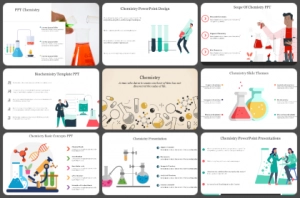
- Free Chemistry PowerPoint Templates: We offer a wide range of free chemistry templates, eliminating any cost barriers and ensuring everyone can access quality presentation resources.
- Editable Chemistry Infographic Templates: Our slides feature creative and fully editable chemistry-themed infographics. These visual aids simplify complex concepts and make your presentations easy to follow, ensuring your audience gains a clear understanding of the subject.
- Chemistry Theme Backgrounds: A captivating backdrop can significantly enhance your presentations. Our templates come with chemistry symbols and visuals that will make your slides more interesting, reinforce the chemistry theme, and make the content more relatable.
We're here to help you!
What are chemistry presentation templates.
Chemistry Presentation Templates are professionally designed slides tailored for chemistry-related topics. These templates feature a range of visually appealing layouts, diagrams, and icons specific to chemistry, making it easier to create captivating presentations on various scientific subjects.
Where can we use these Chemistry Templates?
You can use Chemistry Templates for a wide range of purposes. They are ideal for classroom lectures, scientific conferences, research presentations, chemistry project proposals, or any occasion where you need to communicate complex chemical concepts in an engaging and organized manner.
How can I make Chemistry Slides in a presentation?
Creating chemistry slides in a presentation is a breeze with our Chemistry Templates. Download the template that suits your needs, open it in your preferred presentation software (e.g., PowerPoint, Google Slides), and customize the content.
Who can use these Chemistry Templates?
Students, teachers, researchers, scientists, and professionals working in various chemistry-related fields can use these Chemistry templates. They cater to both those with limited design skills and experienced presenters looking to save time.
Why do we need to use the Chemistry slides?
Chemistry slides help you convey complex scientific information in a clear and visually appealing way. They enable you to present your research, lessons, or findings effectively, enhancing audience understanding and engagement. Well-designed slides also lend professionalism to your presentations.
Where can I find Free Chemistry Presentation templates?
While there are many free templates available online, we recommend using professionally designed templates for a more polished and impactful presentation. Slide Egg offers a range of affordable Chemistry Presentation Templates that are designed to meet the specific needs of educators, scientists, and professionals in the field.
Put a stop to deadline pressure, and have your homework done by an expert.
100 Best Chemistry Topics For A Project In 2023
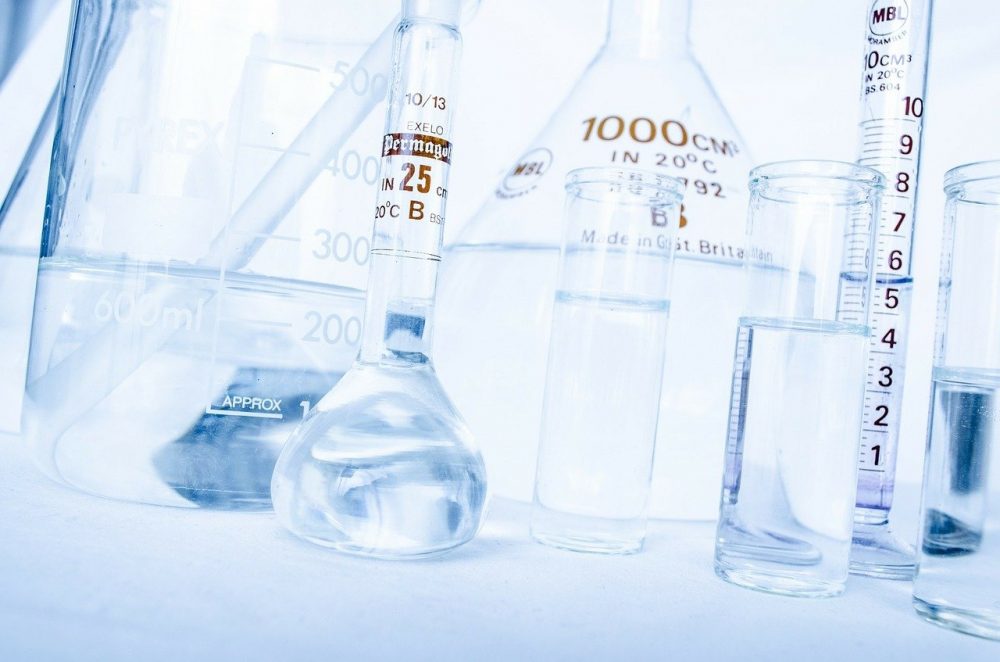
Are you looking for the best topic in chemistry? We are here to help. Take a look at our amazing chemistry research paper topics and chemistry related topics. Pick the one you like and start writing your paper in minutes!
Remember, all our chemistry paper topics are 100% original and we go to great lengths to update the list as frequently as possible. These are the topics in chemistry you need in 2023. We also have plenty of topics in chemistry high school students will love. Use any of these topics for free today!
Why Our List of Chemistry Topics?
We know that finding exceptional chemistry topics can be tough. After all, your classmates are all searching on the Internet for the exact same thing as you. There is a high probability that you will choose some chemistry topics that are already in someone else’s crosshairs. You surely want to avoid writing about the same thing, especially considering the fact that professors usually award bonus points to students who come up with something interesting to write about.
Chemistry is considered one of the hardest college majors , but it’s not a reason to give it up. If you are looking for interesting chemistry topics for presentation, chemistry topics for research or chemistry project topics, you should definitely take a look at our list.
Organic Chemistry Topics
If you are looking for some of the best organic chemistry topics on the Internet, you have arrived at the right place. Take a look at some of these ideas:
- The types of isomerism in organic chemistry.
- The chemistry of aging.
- What are nucleophiles?
- The chemistry behind hydrocarbon fuels.
- The chemistry of Organosilicon elements.
- What are electrophiles?
High School Chemistry Topics
Are you a high school student? You may want to pick one of these interesting high school chemistry topics and start writing your paper today:
- Analyze polyhydric alcohols.
- Analyze aniline dyes.
- What are Proteinogenic aminos?
- The chemical composition of Teflon.
- How is Isoprene rubber created?
Interesting Chemistry Topics
Your professor will surely appreciate you taking the time to come up with the most interesting topic possible. Choose one of our interesting chemistry topics:
- Effects of diet soda on bone density.
- The chemistry behind diet sodas.
- The chemistry of ossification.
- What makes radon dangerous?
- Forensics and the use of chemistry.
- What can replace eggs in foods?
Chemistry IA Topics
Are you looking to boost your IB grades? Get a top score on your internal assessments with our excellent chemistry IA topics:
- Determine the Kc of a particular reaction.
- Analyze the Ideal Gas Laws with a data logger.
- Analyze a redox reaction and calculate the enthalpy change.
- Using calorimetric analysis, determine the amount of CaCO3 in egg shells.
- Three brands of juice and their vitamin C percentages.
AP Chemistry Topics
Ace your AP chemistry course and get top grades on all your essays with our interesting and 100% original AP chemistry topics:
- Analyze the molar mass of a particular substance.
- Chemical equilibrium.
- Analyze three reaction types.
- Solids vs. liquids.
- Evidence for the atomic theory.
Current Topics in Medicinal Chemistry
Writing about current topics is one of the best ways to make sure you get a good grade. We have some current topics in medicinal chemistry that would work great in 2023:
- Group 3B elements and their medicinal properties.
- What are biologically active elements?
- Group 4B elements and their medicinal properties.
- Aspartame: better than sugar?
- How do modern antibiotics work?
General Chemistry Topics
If you want to write an essay about something general (to save time), we recommend the following list of general chemistry topics:
- The chemistry behind fertilizers.
- How do antiviral agents work?
- The chemistry behind synthetic food.
- Growth stimulants for animal farm productivity.
- The chemistry behind e-cigarettes.
Chemistry Projects Topics
Completing a chemistry project can be very difficult. Of course, the topic you choose is extremely important as it can make your life a lot easier. Just pick one of our chemistry projects topics:
- Plant reaction to biologically active H2O.
- Anti-icing agents and their chemistry.
- How do food additives work?
- How are artificial diamonds created?
- Detect nitrate levels in plants.
Chemistry Research Topics for High School
We have some of the best chemistry research topics for high school students you can find online. Use any of these topics in 2023 and get an A+ on your next paper:
- What causes snow pollution?
- Link between healthy nutrition and good health.
- The use of calcium in medicine.
- What causes Beryllium to be toxic?
- How to detect acids in air?
Cool Chemistry Topics
You professor will appreciate your ingenuity, so why not pick one of our cool chemistry topics? Any of these topics will work great and, in addition, they’re pretty easy to write about:
- Pest control mechanisms.
- The role of carboxylic acids in our body.
- Heat engines and their negative environmental effects.
- What are biopolymers?
- Cool ways to freeze water.
Physical Chemistry Topics
Physical chemistry can be tough, we know. But did you know that choosing the right topic can make writing the essay significantly easier? Here are some of the best physical chemistry topics:
- Analyze the atomic structure of a substance.
- Chemical equilibrium project.
- Molecular spectroscopy applications.
- Discuss statistical molecular thermodynamics.
- The second law of thermodynamics: Entropy
Inorganic Chemistry Topics
Our ENL writers have put together a list of amazing inorganic chemistry topics that you can use right now. Pick any of these topics and start writing your paper in minutes:
- Discuss chemical bonding.
- The mechanical properties of alloys.
- What is Redox stability?
- Magnetic properties of metals.
- The chemistry of acids and bases.
Controversial Chemistry Topics
Don’t be afraid to choose one of our controversial chemistry topics. You are not prohibited from writing about these topics, so you don’t have to worry about a thing.
- Is chemical warfare ethical?
- Replicating synthetic molecules.
- Is gene analysis ethical?
- The biography of Fritz Haber.
- Chemistry behind chemical weapons in WWII.
Chemistry Topics for Presentation
Are you putting together a presentation? You may be interested in some very interesting chemistry topics for presentation. Take a look at these ideas:
- How do synthetic molecules replicate?
- Everything you need to know about the Lewis structure.
- Silicon dioxide and solar cells.
- Here is how a Sapphire is formed.
- Differences between organic and inorganic elements.
Easy Organic Chemistry Research Topics
If you don’t want to spend a lot of time researching and writing the essay, you may be interested in one of our easy organic chemistry research topics:
- How does a 3D printer work?
- What is Californium?
- The use of Sodium Azide in airbags.
- The process of photocatalysis.
- How is dry ace created?
Environmental Chemistry Topics
The environment is a pretty hot topic nowadays. Of course, you professor will greatly appreciate you writing an essay on one of these interesting environmental chemistry topics:
- Effect of pesticides on the environment.
- The dangers of petroleum products.
- The effects of pollution on plants.
- Analyze quality of the air in your area.
- Barium toxicity effects on the environment.
Chemistry Research Topics for Undergraduates
Are you an undergrad looking for a chemistry topic that will awe your professor? Here are some of the most interesting chemistry research topics for undergraduates:
- The chemistry of cosmetic products.
- Ibuprofen drugs and their dangers.
- Discuss electronegative atoms.
- The concept of Stoichiometry.
- An in-depth analysis of the hydrophobic effect.
Chemistry Regents Topics
Passing the Chemistry Regents exam is a must for you, we know. However, you need to prepare thoroughly because this is not an easy test. Practice now with our chemistry regents topics:
- Compare suspensions and dispersions.
- The Law of Partial Pressures.
- Analyze hydrogen.
- Modern applications of gas laws.
- Chemical changes caused by drug abuse.
Chemical Engineering Topics
Interested in writing about chemical engineering? We have some of the best and most interesting chemical engineering topics for you:
- Describe the anharmonic oscillator.
- Application of modern polymers.
- In-depth look at petroleum engineering.
- 3D printing applications.
Easy Chemistry Topics for Project
Don’t worry, we can help you with your chemistry project. The easier the topic, the faster you’ll be done. Here are some of the best easy chemistry topics for project:
- The amazing properties of H2O.
- Lipids and their role in human life.
- How does a nano-filter work?
- Plastic packaging health risks.
Do You Need Our Help?
Do you need some more chemistry presentation topics to choose from? Or perhaps you need the most interesting topics in current chemistry. Our experts know all the ins and outs of chemistry and are always up to date with the latest news and developments. So, if you need an interesting chemistry topic, you should just get in touch with us and get chemistry homework help . We will send you a list of topics in no time (all 100% original, created just for you).
Of course, if you need more help, we are the team to rely on. We can help you with much more than just chemistry research topics. If you need writing, editing or proofreading help, contact us today. We have helped thousands of students get top grades on their academic papers, so we definitely know what we’re doing. We’ll get you the A+ you need, don’t worry!
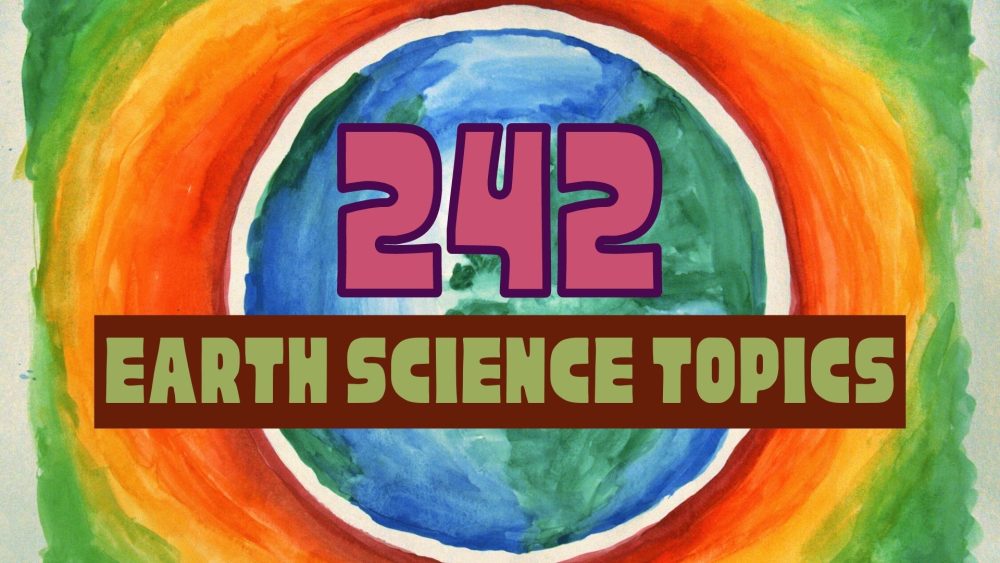
Get on top of your homework.
Leave a Reply Cancel reply
Your email address will not be published. Required fields are marked *
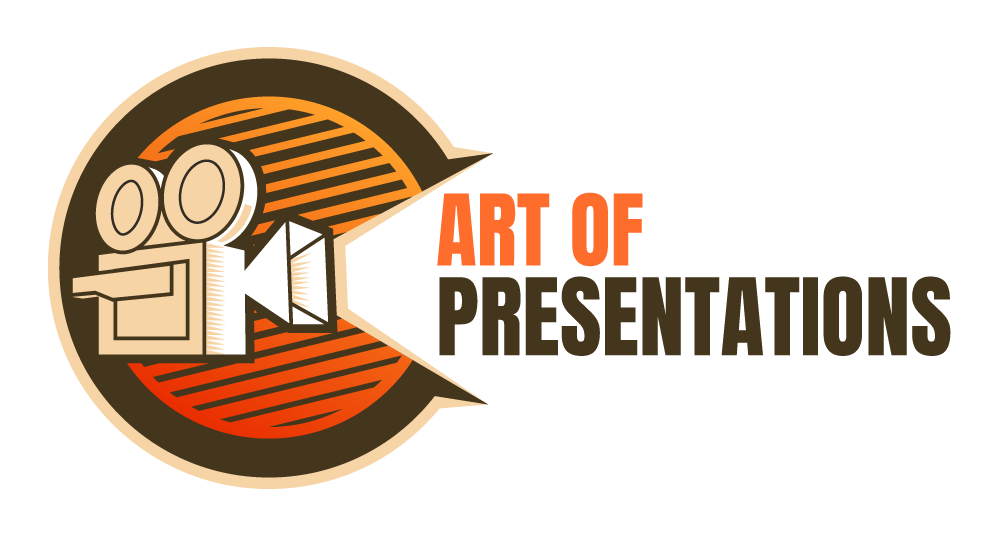
25 Useful Presentation Topics for Science
By: Author Shrot Katewa
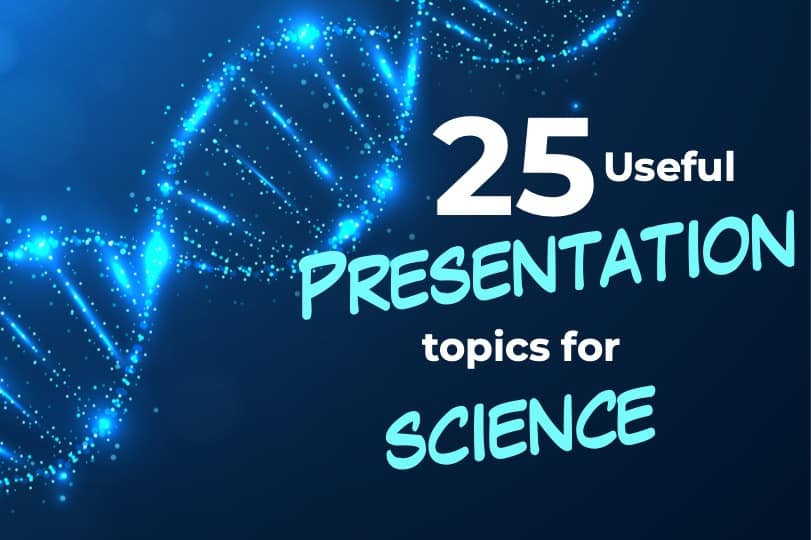
We are mostly asked questions about Presentation Design. But, sometimes, we do have our patrons reaching out to us to seek help with the “content” that needs to be created even before we begin with the design of the presentation.
So, today we are sharing a few really easy-to-cover super useful presentation topics for Science. This is especially helpful for all those teachers and parents who are looking to increase the curiosity of aspiring students and children.
So, let’s dive right into it –
A Quick Note Before We Begin – if you want to make jaw-dropping presentations, I would recommend using one of these Presentation Designs . The best part is – it is only $16.5 a month, but you get to download and use as many presentation designs as you like! I personally use it from time-to-time, and it makes my task of making beautiful presentations really quick and easy!
1. Big Bang Theory – Origin of Our Universe
As a kid, I was always curious about how we came into existence! How the planet Earth was created? How did it all start? This is a great topic to really generate and at times, even quench the curiosity of your students or children. While it is a great topic for presentation in class, it is also an equally good topic for a dinner conversation with your kids.
2. DNA structure
Our DNA is the very core of our life. If the Big Bang Theory is how the universe came into being, DNA is where our personal journey begins. While the structure of DNA is quite fascinating, the impact it has on our lives and how it affects our characteristics is mind-boggling!
It is another great topic for a Science Presentation. Do keep in mind, use of visual aids will most likely improve comprehension and retention among your audience.
3. Gene Editing & Its Uses
In case you choose to go with the previous topic of DNA, Gene Editing serves as a perfect extension of that topic even though it can be a great topic in itself. Sharing insights on Gene Editing and how it works, can showcase the capacity of human endeavors and its resolve to make things better.
4. Important Discoveries of Science
Okay, so this can really be a fun topic. As a kid, it was always fascinating to know about some of the world’s greatest discoveries and inventions.
Be it Penicillium or the first flight by the Wright Brothers, such topics allow you to take your audience on a journey and relive the times in which these discoveries and inventions were made. The thing that I like the most about this topic is that it doesn’t have to be completed in one session.
In fact, this can be turned into a knowledge series of multiple sessions as the list of discoveries is endless.
5. Aerodynamics
Most kids and students are really fascinated with planes. But, only a few really understand the basic principles of how a plane works. Explaining Aerodynamics can be an interesting topic.
It also allows you to introduce props such as a plane and practical exercises such as creating your own plane and analyzing its aerodynamics. The introduction of visuals for such a topic can greatly enhance the learning experience.
So this is a topic that most of the kids and students would have at least heard of, most might know about it a little. But very few would really understand how gravity truly changed our concepts not just on Earth, but also beyond our Planet in our Solar System.
Gravity alone is responsible for the tectonic shift of mindset that the Earth was the center of our Solar System to the fact that the Sun is the center of our Solar System around which the rest of the planets revolve. That and much more!
Explaining the stories of Galileo who first challenged this assumption and how Newton turned everything we knew upside down (almost literally!)
7. Photosynthesis
Another interesting Science topic for a presentation.
How do non-moving organisms produce and consume food? How Photosynthesis is not just limited to trees but virtually drives all lifeforms on Earth through the transfer of energy.
Also, touching upon the fact how Photosynthesis has led to the revolutionary discovery of Solar cells and how it is potentially going to be powering our future.
8. Artificial Intelligence – Boon or Bane
When it comes to Artificial Intelligence, there is a lot that we can do to engage the curiosity of our kids and students. It is an evolving part of Science as we haven’t fully applied and utilized AI.
One of the reasons this can be a great topic is because it engages your students or kids to really think. You may consider forming 2 teams and allowing an open debate on how AI could be a boon or a bane – a great way to promote cross-learning.
9. Ocean – The Unknown World
Our Ocean is what sets our planet Earth apart from the other planets in our solar planet. It is not only one of the main factors contributing to life on earth, the Ocean holds a world of its own with hidden creatures which have only recently been explored.
There is a lot to cover when it comes to the Ocean. Don’t limit your imagination to just lifeforms as you can even talk about treasures troves contained in the ships that sank!
10. Astronomy
So I have a confession to make. Which is this – Astronomy astonished me as a kid, and it amazes me even now! There have been countless nights that I gazed at the stars in the sky in amazement trying to locate a planet, and falling stars and other man-made satellites in the sky.
This is not just an amazing topic for a presentation, but if you could get hold of a telescope for a practical session, it will make a night to remember for the kids and the students!
11. Light and its effects
This is another topic that can turn into a great practical session!
Presentations can be accompanied by a trip to the physics lab or even using equipment like a prism to take the session experience of your audience to a totally different level! Experiencing the various colors that form light is one thing, but understanding how it impacts almost every single thing in our day-to-day activities makes us admire it.
12. Atoms – Building Blocks of Matter
While there is a whole universe outside of our Planet, there is a completely different world that exists when we go granular inside any matter.
There are literally billions and billions of atoms inside just our human body. Each atom has its own world making it as diverse as you can imagine.
How these atoms interact with each other and what makes an atom can be a really engaging topic to bubble the curiosity of the students or your kids!
13. Sound & Waves
Another super interesting presentation topic for Science for kids and students is to understand how Sound works.
There are several things to cover as part of this ranging from simple waves to frequency and resonance experiments. Sound is not just a good topic for a presentation but also for experiments and physical demos.
14. Technology
Technology as a topic has a lot to cover. As we all know that technology touches each of our lives on a daily basis, students can find this topic relatable quite easily. The canvas for exploration and presentation is quite broad giving you a wide range of technology topics to present from.
15. Human Brain
Many believe that we only use 10% of the capacity of our human brain. We have to date only barely managed to understand how our brain works.
Even the parts that we have gathered an understanding about, we don’t quite fully understand. The human brain has remained a topic of astonishment for scientists for a long time. It is only logical to conclude that if presented effectively, this can be a good presentation topic on science.
16. Evolution
When Charles Darwin presented his Theory of Evolution by Natural Selection in his book “The Origin of Species”, it took the world of science by storm.
How the species have evolved over a period of millions of years is quite interesting. There were quite a few interesting learnings that Darwin had and he shared that as a summary. This is something that has been also covered in the TV series Cosmos by Neil Degrasse Tyson.
I highly recommend giving this TV series a watch to get inspiration for some topics for presentation.
17. Magnetism
The majority of the kids have handled and spent hours in awe playing with a magnet. Many try to understand how a magnet really works! But, only a few are able to really understand the science behind it.
Magnetism can be a really fun topic to give a presentation on. Additionally, this topic also allows enough space to display, experiment, and have fun with real magnet and iron filings to showcase the effect of magnetism.
18. Electricity
Electricity is pretty much everywhere.
Today, if there is no electricity, the region is considered underdeveloped or backward. The discovery and the use of electricity is probably one of the greatest inventions of the 20th century.
It has been single-handedly responsible for industrialization, powering growth, and the development of the human race.
19. Steam Engine
Steam Engine was the first step of the human race towards powered locomotives.
From the discovery of the steam engine to how it was responsible for creating a time standard and time zones along with the stories related to it, can all be very fascinating and take you back in time to relive history!
A perfect presentation topic for science students.
20. Science of Medicine
No list of presentation topics for Science would be complete without mentioning medicine and its benefits.
The discovery of medicines and drugs has been responsible for nearly doubling the average human age. The impact is far-reaching with several pros and cons that constitute an interesting topic for presentation.
21. Periodic Table
Students often find this topic very dull. However, if you can help them understand the beauty and significance of this periodic table, it can be an amazing topic.
To really understand how Mendeleev could predict the existence of various elements even before they were discovered, is mind-boggling!
The periodic table is such a perfect table that explains how the elements are arranged in a well-structured manner in nature. This topic can be turned into a very interesting topic but a bit of effort and some out-of-the-box thinking may be required.
22. Buoyancy
Okay, so we all may have heard the story of Archimedes in a bathtub and how he shouted “Eureka” when he managed to solve the problem that was tasked to him. He did this using the Buoyancy principle.
While this story is something we relate to buoyancy the most, there is a lot more than we can truly learn and apply using this principle. This can be a very helpful topic for a presentation as well as a practical science experiment.
23. Health & Nutrition
Health & Nutrition is a very important aspect of our life. Its importance is often not completely understood by kids and students alike. Presenting about Health & Nutrition can go a long way to benefit the students to maintain a very healthy life!
24. Our Solar System
Our Solar System is a topic that is mostly taught since you join the school.
However, while most of us know about our solar system, there are enough mysteries about it to capture and captivate the attention of your audience. Questions like – why is Pluto not a planet anymore?
Or other questions such as – are we alone in this universe or even topics around the Sun as a star or even the asteroid belt between Mars and Jupiter can all lead to great engaging presentations and discussions.
25. Stem Cell
Stem cell research has become cutting-edge medical research. Thus, it is often a hot topic for discussion but is often not completely understood.
This topic will also provide you an opportunity to engage your audience in a debate that could be centered around the ethics of stem cells and their application.
This is a perfect topic as this allows your students or kids to learn and share their opinion with others.
Science is a vast world. Even though there are several other topics that can be covered, we decided to list topics that are relatively common such that it widely applies to a large set of people. If you have shortlisted your presentation topic and are looking for help to create a visually appealing presentation that captures the attention of your audience, be sure to reach out to us!
Our goal on this blog is to create content that helps YOU create fantastic presentations; especially if you have never been a designer. We’ve started our blog with non-designers in mind, and we have got some amazing content on our site to help YOU design better.
If you have any topics in mind that you would want us to write about, be sure to drop us a comment below. In case you need us to work with you and improve the design of your presentation, write to us on [email protected] . Our team will be happy to help you with your requirements.
Lastly, your contribution can make this world a better place for presentations . All you have to do is simply share this blog in your network and help other fellow non-designers with their designs!
General Chemistry Topics
- Chemical Laws
Periodic Table
- Projects & Experiments
- Scientific Method
- Biochemistry
- Physical Chemistry
- Medical Chemistry
- Chemistry In Everyday Life
- Famous Chemists
- Activities for Kids
- Abbreviations & Acronyms
- Weather & Climate
- Ph.D., Biomedical Sciences, University of Tennessee at Knoxville
- B.A., Physics and Mathematics, Hastings College
General chemistry is the study of matter , energy , and the interactions between the two. The main topics in chemistry include acids and bases , atomic structure, the periodic table, chemical bonds, and chemical reactions.
Acids, Bases, and pH
Anchalee Phanmaha / Getty Images
Acids, bases, and pH are concepts that apply to aqueous solutions (solutions in water). pH refers to the hydrogen ion concentration, or the ability of a species to donate/accept protons or electrons. Acids and bases reflect the relative availability of hydrogen ions or proton/electron donors or acceptors. Acid-base reactions are extremely important in living cells and industrial processes.
Atomic Structure
Hero Images / Getty Images
Atoms are composed of protons, neutrons, and electrons. Protons and neutrons form the nucleus of each atom, with electrons moving around this core. The study of atomic structure involves understanding the composition of atoms, isotopes, and ions.
Electrochemistry
Dragan Smiljkovic / Getty Images
Electrochemistry is primarily concerned with oxidation-reduction reactions or redox reactions. These reactions produce ions and may be harnessed to produce electrodes and batteries. Electrochemistry is used to predict whether a reaction will occur and in which direction electrons will flow.
Units and Measurement
barbol88 / Getty Images
Chemistry is a science that relies on experimentation, which often involves taking measurements and performing calculations based on those measurements. It is important to be familiar with the units of measurement and the various ways of converting between different units.
Thermochemistry
mgallar / Getty Images
Thermochemistry is the area of general chemistry that relates to thermodynamics. It is sometimes called physical chemistry. Thermochemistry involves the concepts of entropy, enthalpy, Gibbs free energy, standard state conditions, and energy diagrams. It also includes the study of temperature, calorimetry, endothermic reactions, and exothermic reactions.
Chemical Bonding
SDI Productions / Getty Images
Atoms and molecules join together through ionic and covalent bonding. Related topics include electronegativity, oxidation numbers, and Lewis electron dot structure.
STEVE HORRELL / SPL / Getty Images
The periodic table is a systematic way of organizing the chemical elements. The elements exhibit periodic properties that can be used to predict their characteristics, including the likelihood that they will form compounds and participate in chemical reactions.
Equations and Stoichiometry
Witthaya Prasongsin / Getty Images
It is important to learn how to balance chemical equations and how different factors affect the rate and yield of chemical reactions.
Solutions and Mixtures
AzmanL / Getty Images
An important part of general chemistry is learning about different types of solutions and mixtures and how to calculate concentrations. This category includes topics such as colloids, suspensions, and dilutions.
- College Chemistry Topics
- How to Use a Periodic Table of Elements
- 10 Cool Chemistry Experiments
- Overview of High School Chemistry Topics
- Chemistry 101 - Introduction & Index of Topics
- Topics Typically Covered in Grade 11 Chemistry
- A to Z Chemistry Dictionary
- Chemistry Vocabulary Terms You Should Know
- Teach Yourself Chemistry Today
- Overview of the Branches of Chemistry
- Periodicity Definition in Chemistry
- AP Chemistry Course and Exam Topics
- What Does Reactivity Mean in Chemistry?
- The 5 Main Branches of Chemistry
- Clickable Periodic Table of the Elements
- 10 Facts About Acids and Bases

- Search Search Search …
Free Chemistry Templates for PowerPoint and Google Slides
Make your presentations and lessons stand out with these free chemistry templates.
Download them to use with PowerPoint or edit them in Google Slides and start creating!
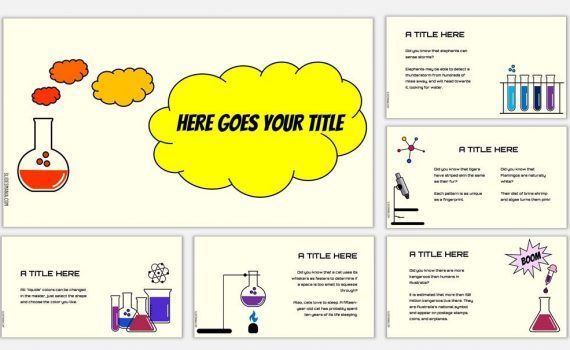
Free Template for PowerPoint and Google Slides Beaker Time for science! Download this free template that is all about lab work. It’s fun and colorful and all the “liquids” colors can be changed, so make all the experiments you want! #Chemistry #Flasks #Droppers #Beakers #Test tubes #Bunsen #Microscope #Experiments #Classroom […]
Beaker Free Template for Google Slides or PowerPoint
This website uses cookies to improve your user experience. By continuing to use the site, you are accepting our use of cookies. Read the ACS privacy policy.
- ACS Publications
21 Cutting-Edge Chemistry Topics
- Jul 31, 2020
- 14 min read
ACS Publications regularly produces collections of the most important chemistry research topics. These Virtual Collections of the most important chemistry research topics bring together the most important ideas in the field in a variety of ways, including Special Issues and ACS Selects from across the portfolio journals. These collections reflect the most important chemistry research […]

ACS Publications regularly produces collections of the most important chemistry research topics. These Virtual Collections of the most important chemistry research topics bring together the most important ideas in the field in a variety of ways, including Special Issues and ACS Selects from across the portfolio journals. These collections reflect the most important chemistry research topics of current scientific interest and are designed for experienced investigators and educators alike.
Browse 21 of the most important, engaging topics in chemists with Virtual Collections released by ACS Publications journals in Q2 2020:
David N. Beratan Festschrift
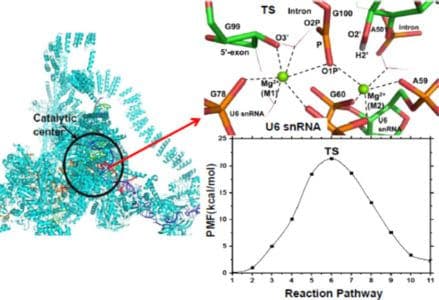
David Beratan’s unique style of doing science has had a broad and deep impact on chemistry, biochemistry, and biophysics. He has developed theories with an eye toward influencing the design and interpretation of key experiments, and his impact has been tremendous. David’s insights and predictive models have opened up entirely new research directions to experimental inquiry: tunneling pathways, inverse molecular design, optimization of polarizability response through ground-state polarization, flickering resonance, and chiral imprinting are all examples of concepts that he has pioneered that have guided experimental designs and advances for decades. ***

First Accounts
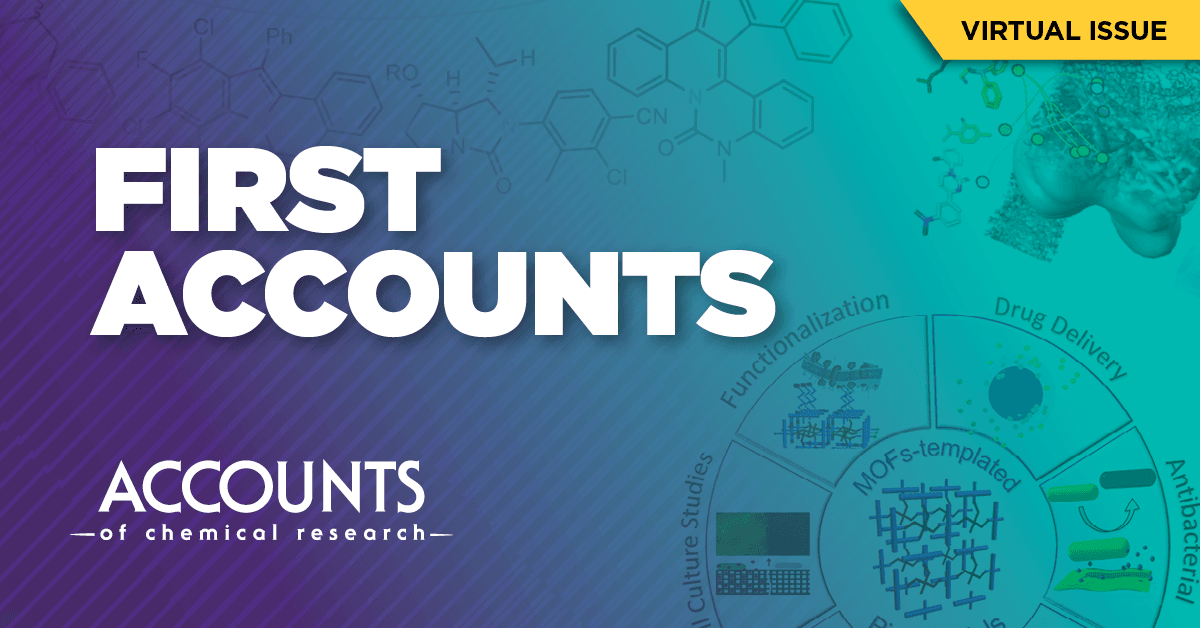
Early-career scientists have some of the freshest ideas and are instrumental in pushing the frontiers of chemistry and related disciplines. Recognizing this, we have initiated the first in an annual series of virtual issues highlighting the publications in Accounts of Chemical Research over the past year that are authored by early-stage scientists: First Accounts. In addition to featuring early career researchers, each Account in this collection is the first article the corresponding author has published in Accounts of Chemical Research as a principal investigator.
First Accounts are also first-hand accounts—our junior faculty and newest researchers in industry and institutes are the most engaged in experimental design and execution in the laboratory, and we see this reflected in the writing from younger authors. In most cases, they have staked their careers on the success of the research program described in their Account, and justifiably, that passion for molecular design, mechanistic inquiry, and structural evidence comes through in their writing. ***
Sustainability
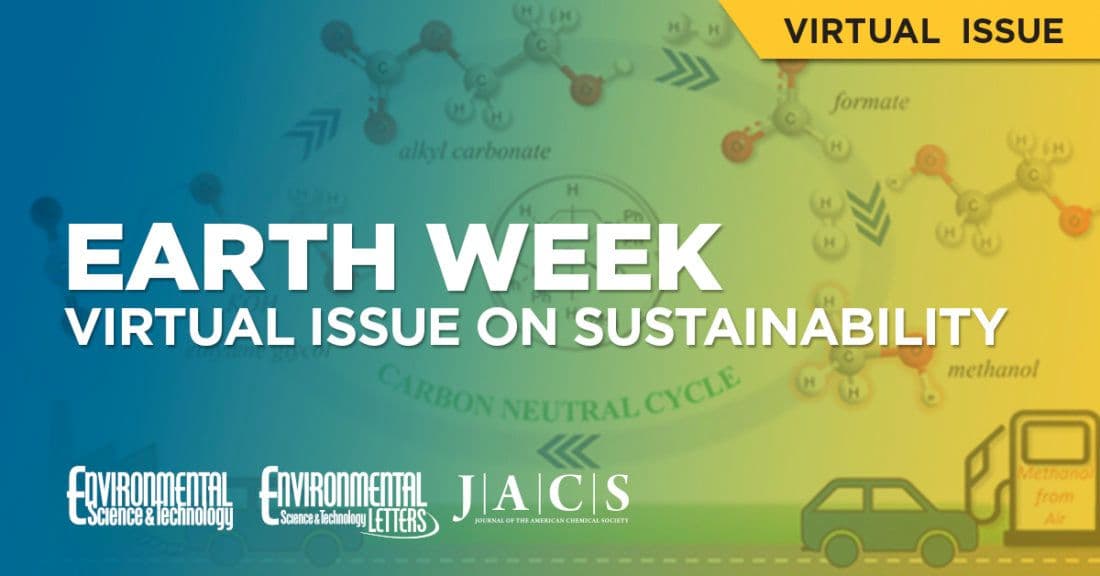
To promote the positive role that chemistry plays in the world, ACS established the Chemists Celebrate Earth Week (CCEW) which will occur April 19-25, 2020. This year’s theme is “Protecting Our Planet through Chemistry”, with a focus on sustainability. ***
Complex Organic Molecules in Star-Forming Regions
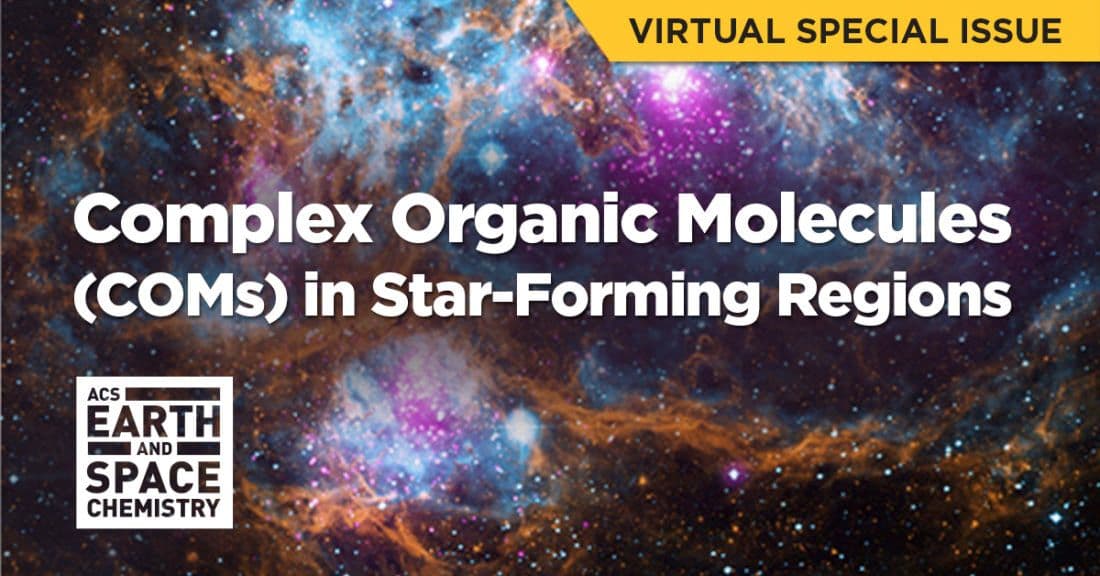
This Virtual Special Issue is concerned mainly with a class of interstellar molecules that strongly resemble organic molecules present in the terrestrial organic laboratory. These molecules, known as “complex organic molecules”, a term abbreviated either as COMs or iCOMs, the “I” standing for “interstellar” since these molecules, containing from 6-13 atoms, are hardly complex when compared with the much larger molecules found on Earth. The COMs, which include simple alcohols, esters, nitriles, and ethers, have been observed extensively by radio astronomy. The wealth of material in this Virtual Special Issue concerning interstellar complex organic molecules should provide the reader with a comprehensive introduction to this burgeoning area of astrochemistry. If the 50-year history of astrochemistry is any guide, however, research in the future is likely to change some of the conclusions reached here. Nevertheless, the future work will be based on the solid foundation reported. ***
New Advances in Organic Aerosol Chemistry
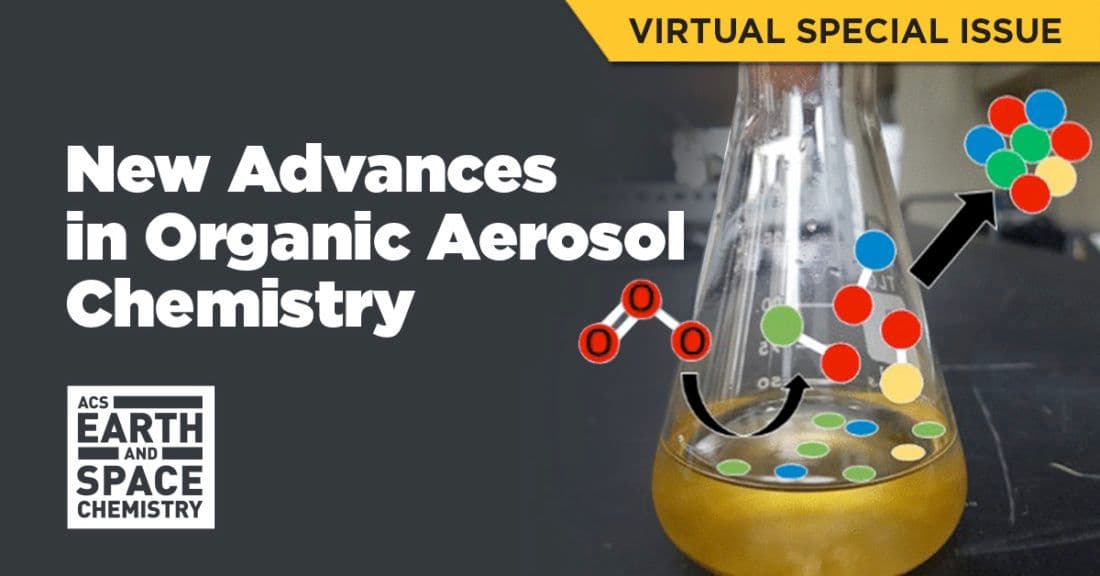
This virtual issue is a collection of exciting new advances in organic aerosol chemistry. The manuscripts fall into four broad and interconnected categories: (1) novel insights into secondary organic aerosol (SOA) formation, (2) the impact of organics on aerosol physical properties relevant for climate, (3) organics and the aerosol-cloud life cycle, and (4) field observations of organic aerosols and their transformations. Collectively, the manuscripts in this virtual issue represent the next generation of ideas and techniques in this field. Further research, enabled by recent advances in aerosol technology and collaborative and inclusive research culture, will be needed to tackle the urgent challenges in global air pollution and climate that we face today. ***
Area Selective Deposition: From Materials Chemistry to Nanofabrication
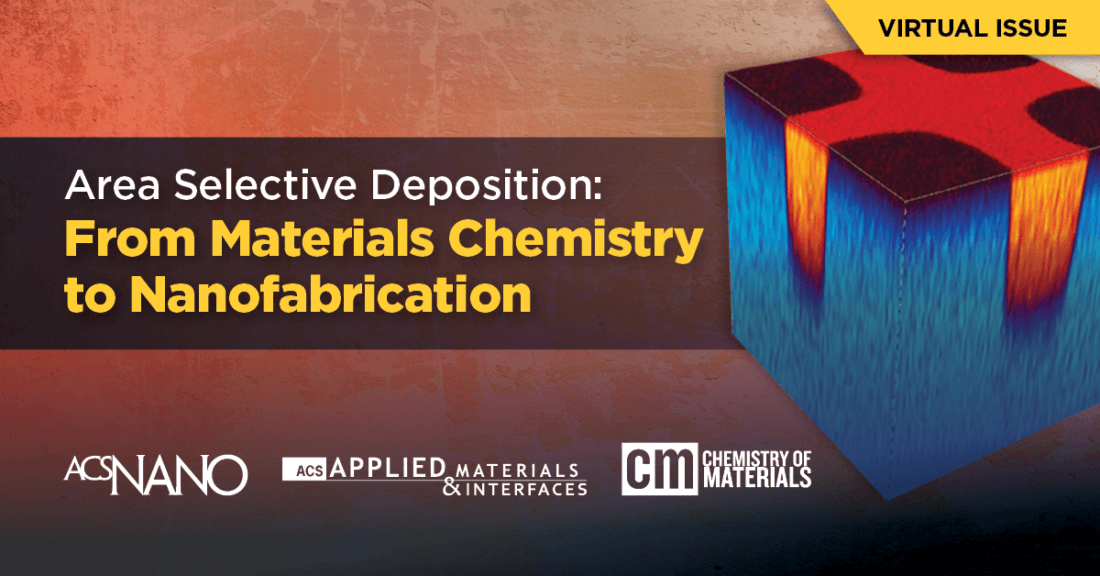
Right around 2014, as the minimum feature size of electronic devices approached 10 nm, nanofabrication needed a break-through technology to enable precise fabrication in 3D structures within the few nanometer scale. Area selective atomic layer deposition (AS-ALD) was recognized as having many advantages for this challenge because it is a bottom-up patterning approach with high conformality in 3D structures. The purpose of this virtual issue is to compile some of the recent, scientifically innovative papers in AS-ALD research published in Chemistry of Materials and other ACS journals for readers who are interested in this research field. Although the papers in this issue are focused on those published recently, we also include a few older published papers to provide some context about the main research history. ***
20th Anniversary of Aggregation-Induced Emission
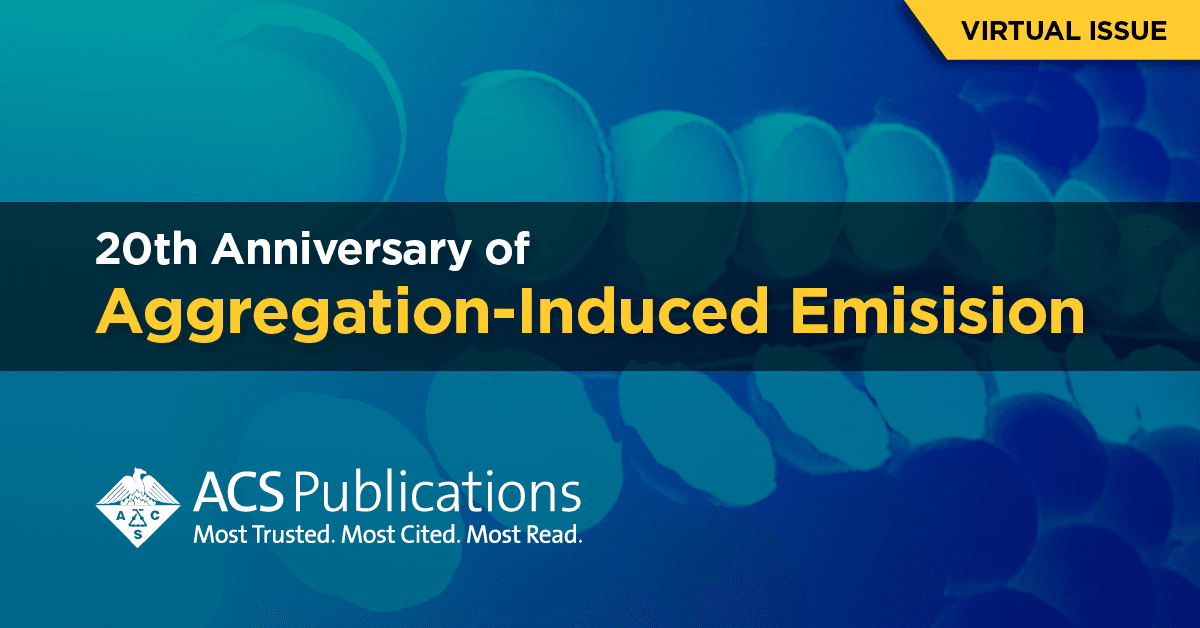
2020 marks the 20th anniversary of the concept of aggregation-induced emission (AIE). Since the concept was first coined in 2001, it changes the way people think about chromophore aggregation and provides a broad platform for the design and development of new luminescent materials in practically useful solid state. AIE and the related interdisciplinary research have greatly promoted the continuous innovation and rapid development of chemistry, materials and medicine, which lay an important physical and theoretical foundation for related fields with substantial global impact. The collection of 30 recently published articles from these ACS journals highlights the dynamic and vibrant AIE research. This Virtual Issue will serve as valuable resources for both well-established and early career researchers to learn more about AIE.
Remembering the Contributions and Life of Professor Joel Bernstein
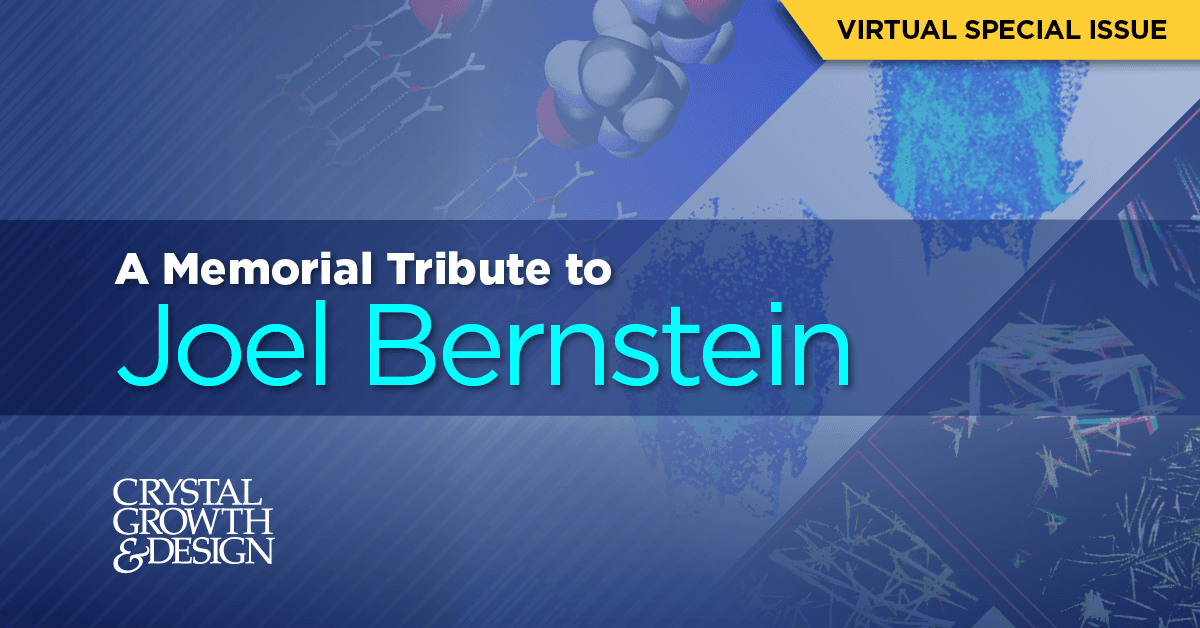
Professor Joel Bernstein (1941–2019) inspired many of us with his insatiable enthusiasm for science and teaching and his passion for the organic solid state. Joel will be remembered for his humanity, compassion, wisdom, scientific depth and breadth, and an unsurpassed passion for history, especially when interwoven with science. He was, truly, polymorphic. This Virtual Special Issue of Crystal Growth & Design is intended to celebrate and commemorate his contributions to the field. ***
Melbourne – Australia’s Science City
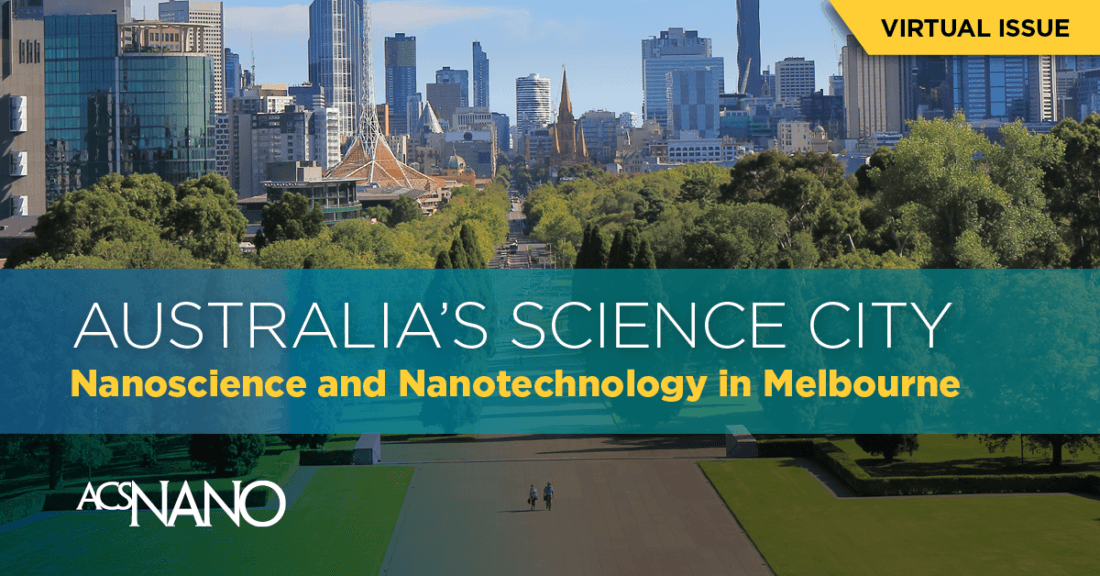
Melbourne is Australia’s second largest city and fastest growing metropolis with around 4.5 million inhabitants. It is also the Australian biomedical and materials science hub. This virtual issue of ACS Nano celebrates recent research in nanoscience and nanotechnology emanating from various institutes within the city of Melbourne: University of Melbourne, Monash University, RMIT University, Swinburne University, the Melbourne Centre for Nanofabrication, and CSIRO. ***
Toward Chemistry in Real Space and Real Time
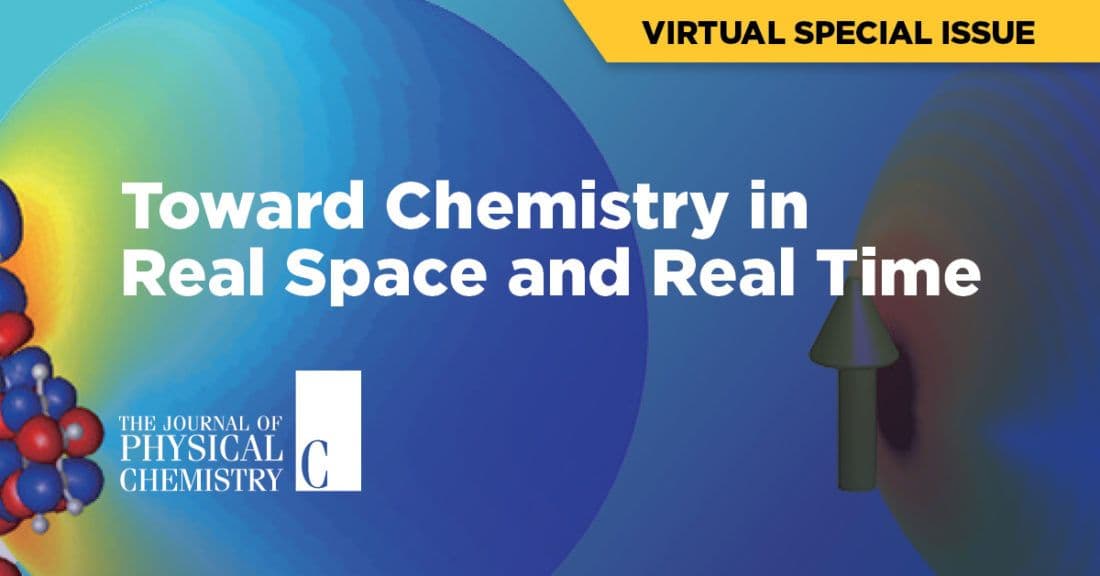
This Virtual Special Issue bears the title of the symposium held during the National Meeting of the American Chemical Society Fall 2019 National Meeting in San Diego, CA, marking the sunset of the eponymous Center for Chemistry at the Space-Time Limit. This National Science Foundation (NSF) Center for Chemical Innovation was founded with the vision to capture motions of individual molecules in real space and time, ultimately, to reach the joint Å-fs scale resolution necessary to visualize chemistry in the act. This VSI serves a collection of manuscripts by participants that capture the topics covered at the CaSTL sunset symposium. ***
Giants in Sensing: A Virtual Issue to Celebrate Five Years of ACS Sensors
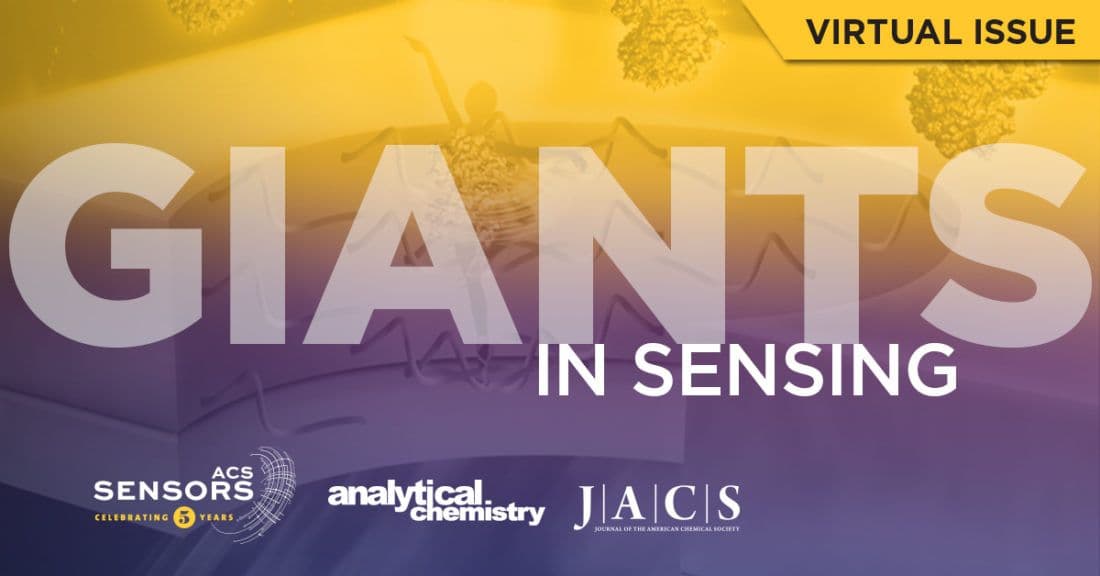
As ACS Sensors celebrates its first five years of publication, we want to take this opportunity to honor people who have been central in shaping the field. To most scientists, chemical and biological sensing is a thoroughly modern discipline. It is unashamedly interdisciplinary, marrying fundamental insights and the foundations of analytical chemistry, state of the art materials science, bioengineering, electrochemistry, optics, biology, clinical and environmental chemistry. It addresses important measurement science challenges that face us today. This is what motivates many of us to contribute to this important field. Together with Analytical Chemistry and the Journal of the American Chemical Society , we present a virtual issue on Giants in Sensing featuring some fifty articles from influential sensing researchers who have contributed to any of these journals in the past five years. Please go through the list, read these excellent articles, and be sure to remember their names and those that came before when you write your next publication. It is humbling to know that we are all standing on the shoulders of giants. ***
Natural Products: Isolation, Total Synthesis, Structure-Activity Relationships, and More
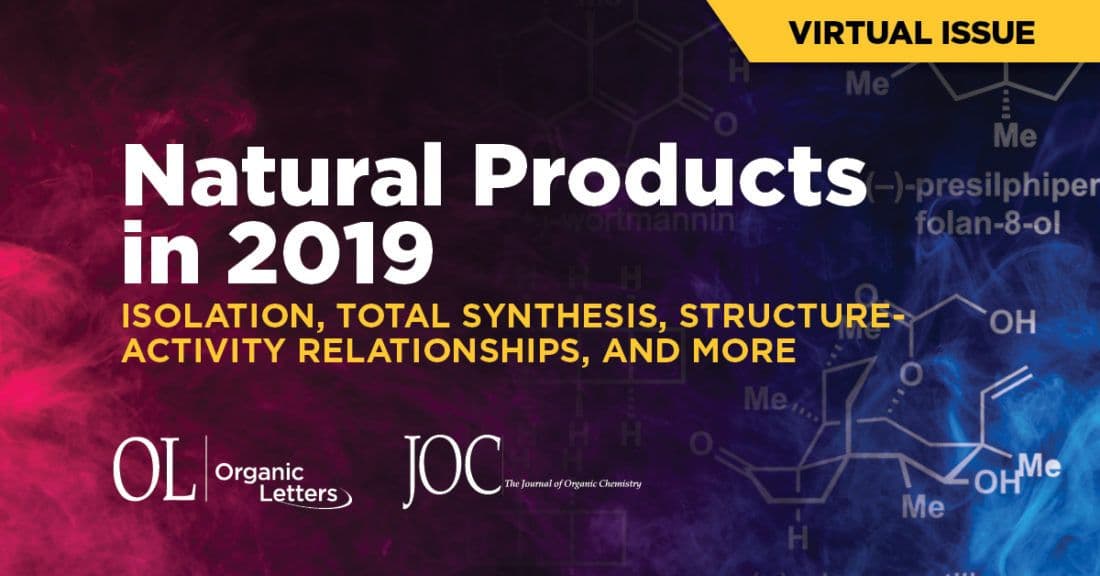
Chemists are known for their ability to design and create molecules and materials—it is at the heart of what we do. Many of our ideas originate with the ultimate molecular designer and synthetic engineer, Nature, which has found an elegant way over time to create the necessary molecules of life or ones that participate in life cycles. Much of the new chemistry involving these natural products ends up on the pages of Organic Letters and The Journal of Organic Chemistry each year, pieced together through total synthesis to guide the way toward developing new and improved medicines, agricultural chemicals, biocatalysts, and more.
In this Virtual Issue, we feature 40 leading articles on natural products chemistry, selected by Organic Letters Editor-in-Chief Erick M. Carreira and The Journal of Organic Chemistry Editor-in-Chief Scott J. Miller from among the more than 250 articles on the topic published in the ACS core organic journals during 2019. ***
Quantum Dots and their Applications: What Lies Ahead?
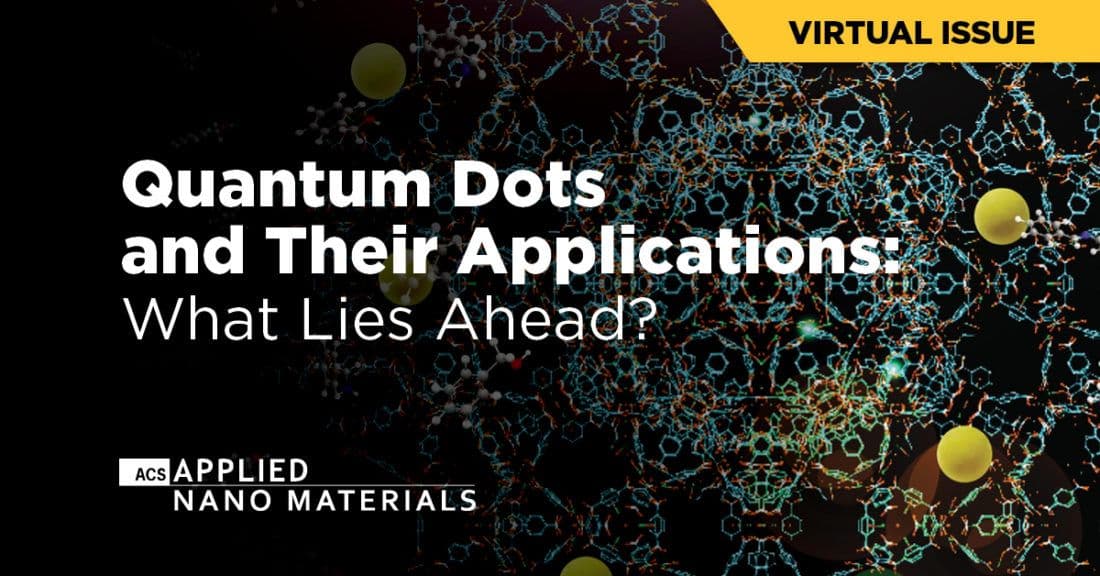
It has been many years since the first works on the reduced dimensionality of semiconductors, which led to the concept of ‘artificial atoms’, or quantum dots (QDs). These semiconductor nanocrystals, with nanometer-sized diameters, exhibit quantum size effects in their optical and electronic properties. In particular, tunable and efficient photoluminescence (PL), with narrow emission and photochemical stability, as well as core-shell structures are commonly achieved today for many quantum dot materials systems. As a consequence, quantum dots have been incorporated as active elements in a wide variety of devices and applications, such as light-emitting diodes and display applications, photovoltaics, photoconductors and photodetectors, biomedical and environmental applications and catalysis applications. Many of these applications are now commercially-available and incorporated into our daily life, such as the case of quantum-dot-based displays. Despite being now part of mature technologies, quantum dot synthesis, characterization, and applications still constitute a highly active field of investigation. In light of various new development in applications of quantum dots, it is our pleasure to announce a “virtual issue” on quantum dots and their applications for ACS Applied Nano Materials . ***
Laboratory Learning
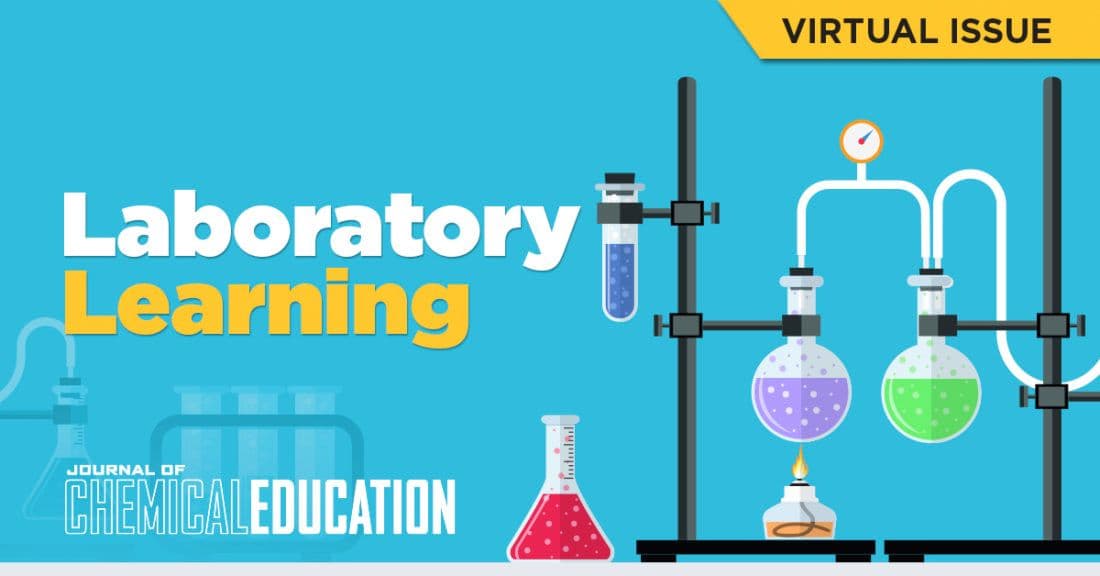
The Journal of Chemical Education has published many widely cited articles about learning in the chemistry laboratory. Laboratory teaching continues to evolve and face new challenges in today’s world. To help share the broad approaches to laboratory education, the journal has provided a collective resource of articles on laboratory learning and understanding, inquiry methods, student preparedness, assessing the lab, and faculty goals and professional development for laboratory teaching. We hope your find these articles as a useful resource increasing your knowledge in laboratory learning. ***
Challenges and Opportunities in Designing Perovskite Nanocrystal Heterostructures
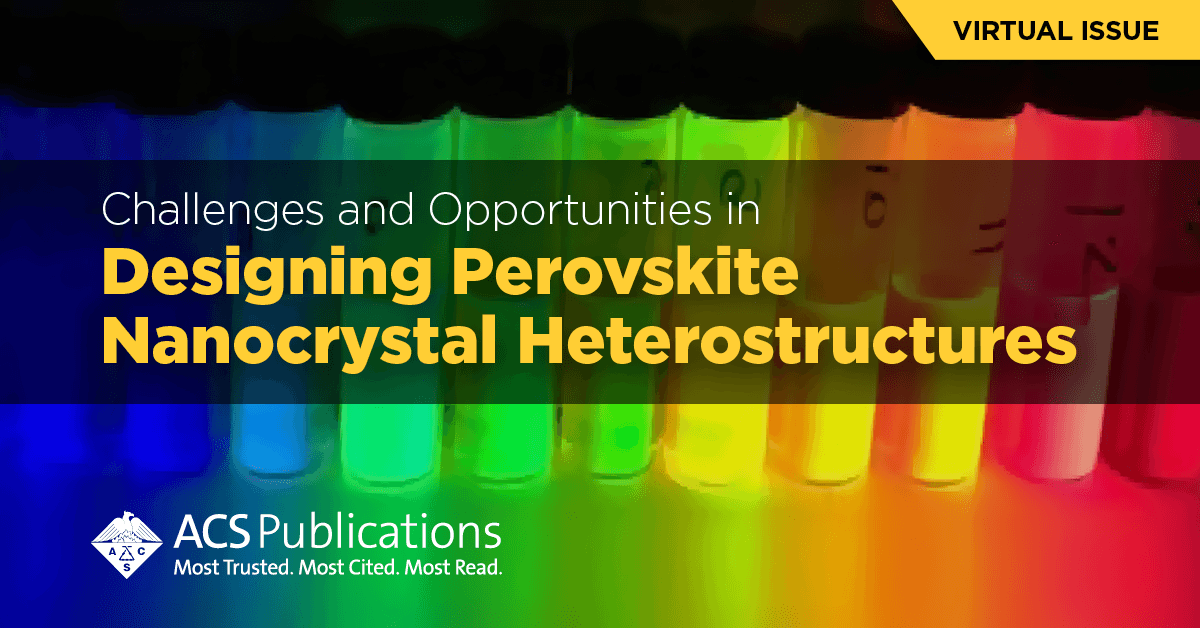
Since the first report of CsPbBr3 nanocrystal synthesis by the hot-injection five years ago, we have seen phenomenal growth in research efforts to understand the photodynamics, luminescent properties, and stabilization of different phases of perovskite materials. We envision the possibility of designing perovskite nanocrystal heterostructures in combinations with other perovskites, metal oxides and chalcogenides, and precious metals and 2D materials. This virtual issue highlights some of the key findings published in ACS Applied Materials and Interfaces, ACS Energy Letters, ACS Nano, Chemistry of Materials, Journal of American Chemical Society, Nano Letters, and Journal of Physical Chemistry C . ***
International Symposium on Molecular Spectroscopy
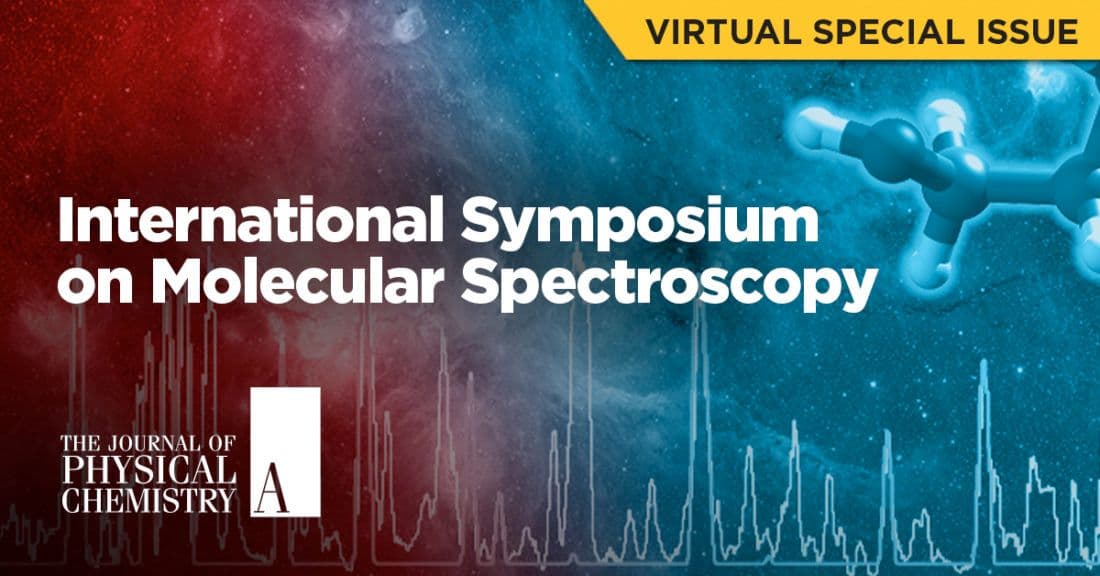
The collection of papers in this virtual special issue of the Journal of Physical Chemistry A are representative of the work disseminated over the last decade at the International Symposium on Molecular Spectroscopy (ISMS), which is on the verge of its 75th anniversary. The ISMS was founded in 1946 and was held on campus at The Ohio State University for 68 consecutive years, where after it moved to the University of Illinois Urbana-Champaign. Historically, the emphasis of the ISMS has been the characterization of the structure, dynamics, and spectroscopy of molecular systems, including complexes and clusters. The fundamental spectroscopic techniques developed by the participants of ISMS have been applied over the years to an ever more precise understanding of the chemistry and physics of aqueous environments, combustion, the interstellar medium, and planetary atmospheres, to name a few of the more popular areas of discussion at the symposium. This research, in both the gas and condensed phases, spans the subject areas of JPC A . ***
3D Printing of Polymers

The distributive manufacturing enabled by 3D printing has been on display in the response to shortages in critical medical resources for the response to the COVID-19 epidemic. In almost all cases, these 3D printed parts have been polymers and have been instrumental in providing a stopgap to logistical challenges in obtaining critical components. These have included, amongst many other examples, engineered solutions to limited number of ventilators through 3D printing of valves for ventilators, parts to transform snorkeling masks into continuous positive airway pressure (CPAP) devices, and repurposing of existing medical equipment to meet demands for treating patients. The timely delivery of these 3D printed plastic components has been enabled by the advances in 3D printing over the past decades. In light of their acute significance in this global health crisis, it is our pleasure to announce a “virtual issue” on the 3D printing of polymers for ACS Applied Polymer Materials .
New Tools and Methods in Physical Chemistry Research
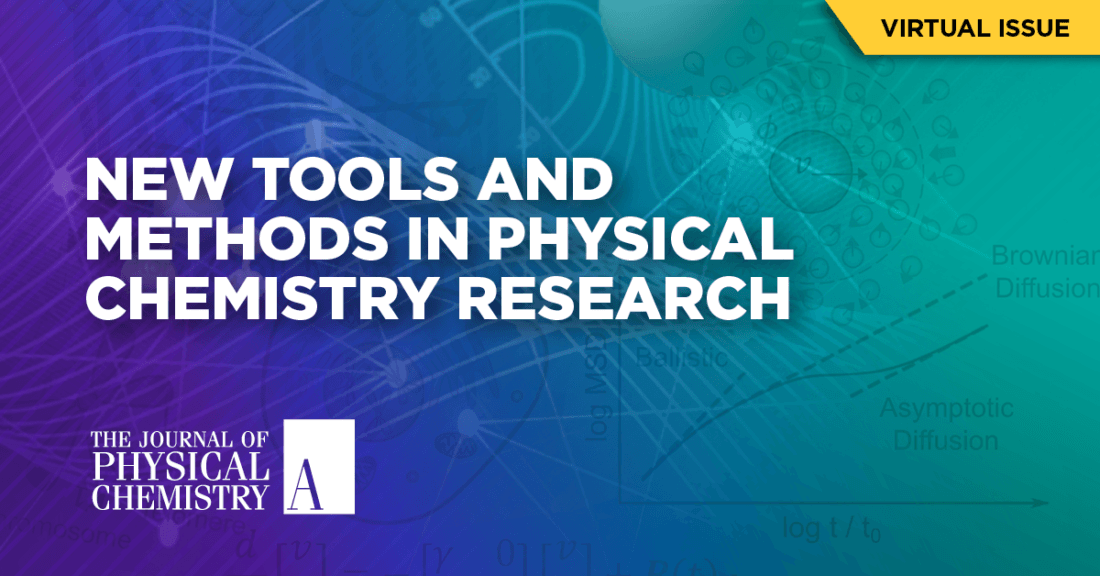
This spring marks the second anniversary of the introduction of a section in The Journal of Physical Chemistry A highlighting work in the development of New Tools and Methods in Experiment and Theory. Work published in this section of J. Phys. Chem. A spans the full scope of physical chemistry research that is published in the three parts of the Journal. In the two years since this section was introduced, we have published more than 200 articles. In this collection of twenty-five articles, we highlight representative examples of the exciting work in the development of new tools and methods, which has been published in The Journal over the past two years. ***
Recent Highlights on Interfaces from China

This Langmuir virtual issue contains a collection of carefully selected articles which showcase very recent studies on interfaces from China. The authors with science and engineering backgrounds are from national and state key laboratories, academic institutes as well as universities located at various parts of China. We hope that you’ll enjoy reading this sample collection of Langmuir publications for the recent exciting work on nanomaterials and interfaces authored by Chinese scientists! ***
Virus Detection
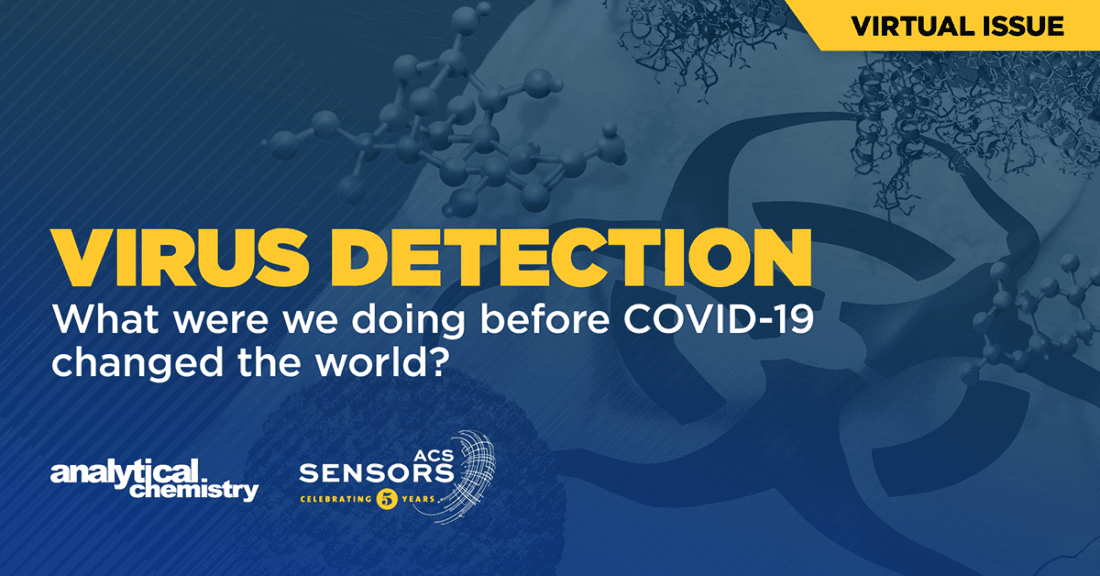
In this virtual issue, we highlight 23 papers centered on the development of molecular tests for viruses. The type of work these researchers were doing was no less important then, than it is now. Current events have just brought the importance of their work into focus. We feel the papers in this virtual issue serve as a benchmark for the types of innovation the journals Analytical Chemistry and ACS Sensors are looking for. The papers we selected are just a subset of the many wonderful, innovative papers on infection detection we have published and represent the incredible work being done around the globe in detection science that will help keep us safe. When we read the papers, they give us hope that we will be far better equipped to deal with any future potential pandemics. We thank these scientists for their research. ***
A New Era of Metal-Organic Framework Nanomaterials and Applications
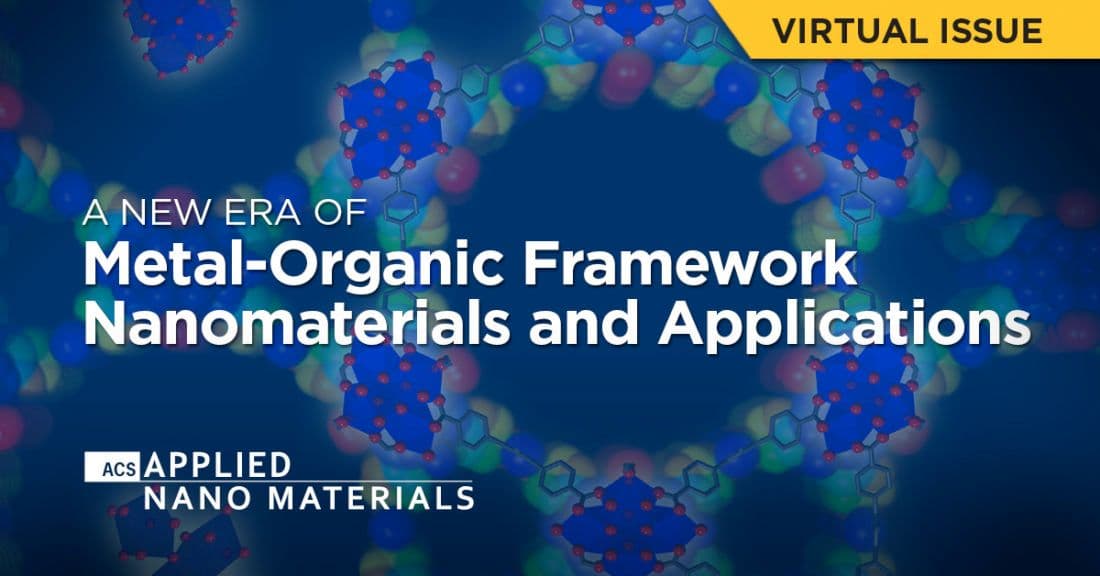
Want the latest stories delivered to your inbox each month?
100+ Great Chemistry Research Topics
Table of contents
- 1 5 Tips for Writing Chemistry Research Papers
- 2 Chemical Engineering Research Topics
- 3 Organic Сhemistry Research Topics
- 4 Іnorganic Сhemistry Research Topics
- 5 Biomolecular Сhemistry Research Topics
- 6 Analytical Chemistry Research Topics
- 7 Computational Chemistry Research Topics
- 8 Physical Chemistry Research Topics
- 9 Innovative Chemistry Research Topics
- 10 Environmental Chemistry Research Topics
- 11 Green Chemistry Research Topics
- 12.1 Conclusion
Do you need a topic for your chemistry research paper? Are you unsure of where to start? Don’t worry – we’re here to help. In this post, we’ll go over a series of the best chemistry research paper topics as well as Tips for Writing Chemistry Research Papers on different topics. By the time you finish reading this post, you’ll have plenty of ideas to get started on your next research project!
There are many different subfields of chemistry, so it can be tough to find interesting chemistry topics to write about. If you’re struggling to narrow down your topic, we’ll go over lists of topics in multiple fields of study.
Doing research is important to help scientists learn more about the world around us. By researching different compounds and elements, we can learn more about how they interact with one another and how they can be used to create new products or improve existing ones.
There are many different topics that you can choose to research in chemistry. Here are just a few examples:
- The history of chemistry and how it has evolved over time
- How different chemicals react with one another
- How to create new compounds or improve existing ones
- The role of chemistry in the environment
- The health effects of different chemicals
5 Tips for Writing Chemistry Research Papers
Once you have chosen a topic for your research paper , it is important to follow some tips to ensure that your paper is well-written and accurate. Here are a few tips to get you started:
- Start by doing some background research on your topic. This will help you understand the basics of the topic and give you a good foundation to build your paper on.
- Make sure to cite all of the sources that you use in your paper. This will help to show where you got your information and will also help to add credibility to your work.
- Be sure to proofread your paper before you submit it. This will ensure that there are no errors and that your paper is clear and concise.
- Get help from a tutor or friend if you are struggling with your paper. They may be able to offer helpful advice or feedback.
- Take your time when writing your research paper . This is not a race, and it is important to make sure that you do a good job on your research.
By following these tips, you can be sure that your chemistry research paper will be a success! So what are you waiting for? Let’s go over some of the best research paper topics out there.
Chemical Engineering Research Topics
Chemical Engineering is a branch of engineering that deals with the design and application of chemical processes. If you’re wondering how to choose a paper topic, here are some ideas to inspire you:
- How to create new alloy compounds or improve existing ones
- The health effects of the food industry chemicals
- Chemical engineering and sustainable development
- The future of chemical engineering
- Chemical engineering and the food industry
- Chemical engineering and the pharmaceutical industry
- Chemical engineering and the cosmetics industry
- Chemical engineering and the petrochemical industry
- Biocompatible materials for drug delivery systems
- Membrane technology in water treatment
- Development of synthetic fibers for industrial use
These are just a few examples – there are many more possibilities out there! So get started on your research today. Who knows what you might discover!

Organic Сhemistry Research Topics
Organic chemistry is the study of carbon-containing molecules. There are many different organic chemistry research topics that a student could choose to focus on and here are just a few examples of possible research projects in organic chemistry:
- Investigating new methods for synthesizing chiral molecules
- Studying the structure and reactivity of carbon nanotubes
- Investigating metal complexes with organometallic ligands
- Designing benzene derivatives with improved thermal stability
- Exploring new ways to control the stereochemistry of chemical reactions
- Studying the role of enzymes in organic synthesis
- Investigating new strategies for combating drug resistance
- Developing new methods for detecting explosives residues
- Studying the photochemistry of organic molecules
- Studying the behavior of organometallic compounds in biological systems
- Synthetic routes for biodegradable plastics
- Catalysis in organic synthesis
- Development of non-toxic solvents
Іnorganic Сhemistry Research Topics
Inorganic Chemistry is the study of the chemistry of materials that do not contain carbon. Unlike other chemistry research topics, these include elements such as metals, minerals, and inorganic compounds. If you are looking for inorganic chemistry research topics on inorganic chemistry, here are some ideas to get you started:
- How different metals react with one another
- How to create new alloys or improve existing ones
- The role of inorganic chemistry in the environment
- Rare earth elements and their applications in electronics
- Inorganic polymers in construction materials
- Photoluminescent materials for energy conversion
- Inorganic chemistry and sustainable development
- The future of inorganic chemistry
- Inorganic chemistry and the food industry
- Inorganic chemistry and the pharmaceutical industry
- Atomic structure progressive scale grading
- Inorganiс Сhemistry and the cosmetics industry

Biomolecular Сhemistry Research Topics
Biomolecular chemistry is the study of molecules that are important for life. These molecules can be found in all living things, from tiny bacteria to the largest animals. Researchers who work in this field use a variety of techniques to learn more about how these molecules function and how they interact with each other.
If you are looking for essential biomolecular chemistry research topics, here are some ideas to get you started:
- The structure and function of DNA
- Lipidomics and its applications in disease diagnostics
- The structure and function of proteins
- The role of carbohydrates in the body
- The role of lipids in the body
- How enzymes work
- Protein engineering for therapeutic applications
- The role of biochemistry in heart disease
- Cyanides and their effect on the body
- The role of biochemistry in cancer treatment
- The role of biochemistry in Parkison’s disease treatment
- The role of biochemistry in the immune system
- Carbohydrate-based vaccines
The possibilities are endless for someone willing to dedicate some time to research.
Analytical Chemistry Research Topics
Analytical Chemistry is a type of chemistry that helps scientists figure out what something is made of. This can be done through a variety of methods, such as spectroscopy or chromatography. If you are looking for research topics, here are some ideas to get you started:
- How food chemicals react with one another
- Mass spectrometry
- Microplastics detection in marine environments
- Development of sensors for heavy metal detection in water
- Analytical aspects of gas and liquid chromatography
- Analytical chemistry and sustainable development
- Atomic absorption spectroscopy methods and best practices
- Analytical chemistry and the pharmaceutical industry in Ibuprofen consumption
- Analytical chemistry and the cosmetics industry in UV protectors
- High-throughput screening methods in pharmaceutical analysis
- Dispersive X-ray analysis of damaged tissues
Analytical chemistry is considered by many a complex science and there is a lot yet to be discovered in the field.

Computational Chemistry Research Topics
Computational chemistry is a way to use computers to help chemists understand chemical reactions. This can be done by simulating reactions or by designing new molecules. If you are looking for essential chemistry research topics in computational chemistry, here are some ideas to get you started:
- Molecular mechanics simulation
- Machine learning applications in predicting molecular properties
- Reaction rates of complex chemical reactions
- Designing new molecules: how can simulation help
- The role of computers in the study of quantum mechanics
- How to use computers to predict chemical reactions
- Using computers to understand organic chemistry
- The future of computational Chemistry in organic reactions
- The impacts of simulation on the development of new medications
- Combustion reaction simulation impact on engine development
- Quantum-chemistry simulation review
- Simulation of protein folding and misfolding in diseases
- Development of algorithms for chemical synthesis planning
- Applications of Metal-Organic Frameworks in water sequestration and catalysis
Computers are cutting-edge technology in chemical research and this relatively new field of study has a ton yet to be explored.
Physical Chemistry Research Topics
Physical chemistry is the study of how matter behaves. It looks at the physical and chemical properties of atoms and molecules and how they interact with each other. If you are looking for physical chemistry research topics, here are some ideas to get you started:
- Standardization of pH scales
- Structure of atom on a quantum scale
- Bonding across atoms and molecules
- The effect of temperature on chemical reactions
- The role of light in in-body chemical reactions
- Chemical kinetics
- Molecular dynamics in confined spaces
- Quantum computing for solving chemical problems
- Studies on non-Newtonian fluids in industrial processes
- Surface tension and its effects on mixtures
- The role of pressure in chemical reactions
- Rates of diffusion in gases and liquids
- The role of entropy in chemical reactions
Here are just a few samples, but there are plenty more options! Start your research right now!
Innovative Chemistry Research Topics
Innovative chemistry is all about coming up with new ideas and ways to do things. This can be anything from creating new materials to finding new ways to make existing products. If you are looking for ground-breaking chemistry research topics, here are some ideas to get you started:
- Amino acids side chain effects in protein folding
- Chemistry in the production of nanomaterials
- The role of enzymes in chemical reactions
- Photocatalysis in 3D printing
- Avoiding pesticides in agriculture
- Combining chemical and biological processes
- Gene modification in medicinal chemistry
- The role of quantum mechanics in chemical reactions
- Astrochemical research on extraterrestrial molecules
- Spectroscopy signatures of pressurized organic components
- Development of smart materials with responsive properties
- Chemistry in space: studying chemical reactions in microgravity
- Utilization of CO2 in chemical synthesis
- Use of black soldier fly carcasses for bioplastic production using extracted chitin
- Bioorthogonal chemistry for molecule synthesis inside living systems
If you need a hand, there are several sites that also offer research papers for sale and can be a great asset as you work to create your own research papers.
Whatever route you decide to take, good luck! And remember – the sky’s the limit when it comes to research! So get started today and see where your studies may take you. Who knows, you might just make a breakthrough discovery!
Environmental Chemistry Research Topics
Environmental Chemistry is the study of how chemicals interact with the environment. This can include anything from the air we breathe to the water we drink. If you are looking for environmental chemistry research topics, here are some ideas to get you started:
- Plastic effects on ocean life
- Urban ecology
- The role of carbon in climate change
- Air pollution and its effects
- Water pollution and its effects
- Chemicals in food and their effect on the body
- The effect of chemicals on plant life
- Earth temperature prediction models
- Effects of pharmaceuticals in aquatic environments
- Atmospheric chemistry and urban air quality
- Bioremediation techniques for oil spill cleanup
- Regulatory and environmental impact of Per- and Polyfluoroalkyl (PFA) substances
- Comparison of chemical regulation impacts like PFA with historical cases such as lead in fuel
A lot of research on the environment is being conducted at the moment because the environment is in danger. There are a lot of environmental problems that need to be solved, and research is the key to solving them.
Green Chemistry Research Topics
Green chemistry is the study of how to make products and processes that are environmentally friendly. This can include anything from finding new ways to recycle materials to developing new products that are biodegradable. If you are looking for green chemistry research topics, here are some ideas to get you started:
- Recycling and reuse of materials
- Developing biodegradable materials
- Improving existing recycling processes
- Green chemistry and sustainable development
- The future of green chemistry
- Green chemistry and the food industry
- Lifecycle assessment of chemical processes
- Green chemistry and the pharmaceutical industry
- Development of catalysts for green chemistry
- Green chemistry and the cosmetics industry
- Alternative energy sources for chemical synthesis
A more environmentally friendly world is something we all aspire for and a lot of research has been conducted on how we can achieve this, making this one of the most promising areas of study. The results have been varied, but there are a few key things we can do to make a difference.
Controversial Chemistry Research Topics
Controversial chemistry is all about hot-button topics that people are passionate about. This can include anything from the use of chemicals in warfare to the health effects of different chemicals. If you are looking for controversial topics to write about , here are some ideas to get you started:
- The use of chemicals in warfare
- Gene modification in human babies
- Bioengineering
- How fast food chemicals affect the human brain
- The role of the government in regulating chemicals
- Evolution of cigarette chemicals over time
- Chemical effects of CBD oils
- Ethical issues in genetic modification of organisms
- Nuclear energy: risks and benefits
- Use of chemicals in electronic waste recycling
- Antidepressant chemical reactions
- Synthetic molecule replication methods
- Gene analysis
Controversial research papers often appear in the media before it has been peer-reviewed and published in a scientific journal. The reason for this is that the media is interested in stories that are new, exciting, and generate a lot of debate.
Chemistry is an incredibly diverse and interesting field, with many controversial topics to write about. If you are looking for a research topic, consider the examples listed in this article. With a little bit of effort, you are sure to find a topic that is both interesting and within your skillset.
In order to be a good researcher, it is important to be able to think critically and solve problems. However, innovation in chemistry research can be challenging. When thinking about how to innovate, it is important to consider both the practical and theoretical aspects of your research. Additionally, try to build on the work of others in order to create something new and unique. With a little bit of effort, you are sure to be able to find a topic that is both interesting and within your skillset.
Happy writing!
Readers also enjoyed

WHY WAIT? PLACE AN ORDER RIGHT NOW!
Just fill out the form, press the button, and have no worries!
We use cookies to give you the best experience possible. By continuing we’ll assume you board with our cookie policy.
321 Interesting Chemistry Topics & Writing Tips
Chemistry studies matter and what it’s made of. It tells us how substances change and what properties they have. Chemistry seeks to answer questions such as: What is the Universe made of? How do elements react with each other?
Read our article to dive deeper into this intricate subject. What is more, we’ve prepared a list of 300 exciting chemistry-related topics. You can choose between organic, nuclear chemistry, biochemistry, and other branches. Our interesting topics in chemistry will make your studies more enjoyable!
Don’t forget that writing is our element. Is your assignment’s deadline closing in? Our custom writing service will take the pressure off you!
🔝 Top 10 Interesting Chemistry Topics
- ✅ Branches of Chemistry
- ✍️ Writing Tips
⭐ Top 10 Chemistry Essay Topics
- 🔬 General Chemistry Topics
- 🧑🥼 Chemistry Project Topics
- 🤔 Advanced Chemistry
- 🦠 Biochemistry
- 🧬 Organic Chemistry
- ♻️ Green Chemistry
- ⚗️ Inorganic Chemistry
- ⚛️ Nuclear Chemistry
- 🧮 Analytical Chemistry
- 🧪 Physical Chemistry
🔍 References
- Biochemistry in nursing
- Crystalloids vs. colloids
- The purpose of dilutions
- Principles of electrochemistry
- Why is stoichiometry so difficult?
- Are there alternative periodic tables?
- The polarity of bonds classification
- How is nuclear chemistry used?
- The importance of Lewis electron dot structure
- Endothermic reactions vs. exothermic reactions
✅ Main Branches of Chemistry
Chemistry is a broad subject that uses various methods of study. Because of this, scientists divide it into five main branches. These are organic, inorganic, physical, analytical, and biochemistry . Let’s investigate them:
- Organic chemistry examines life. It seeks to understand the molecular structure and behavior of living beings.
- Inorganic chemistry focuses on materials rather than living beings. Chemists of this field aim to advance technology.
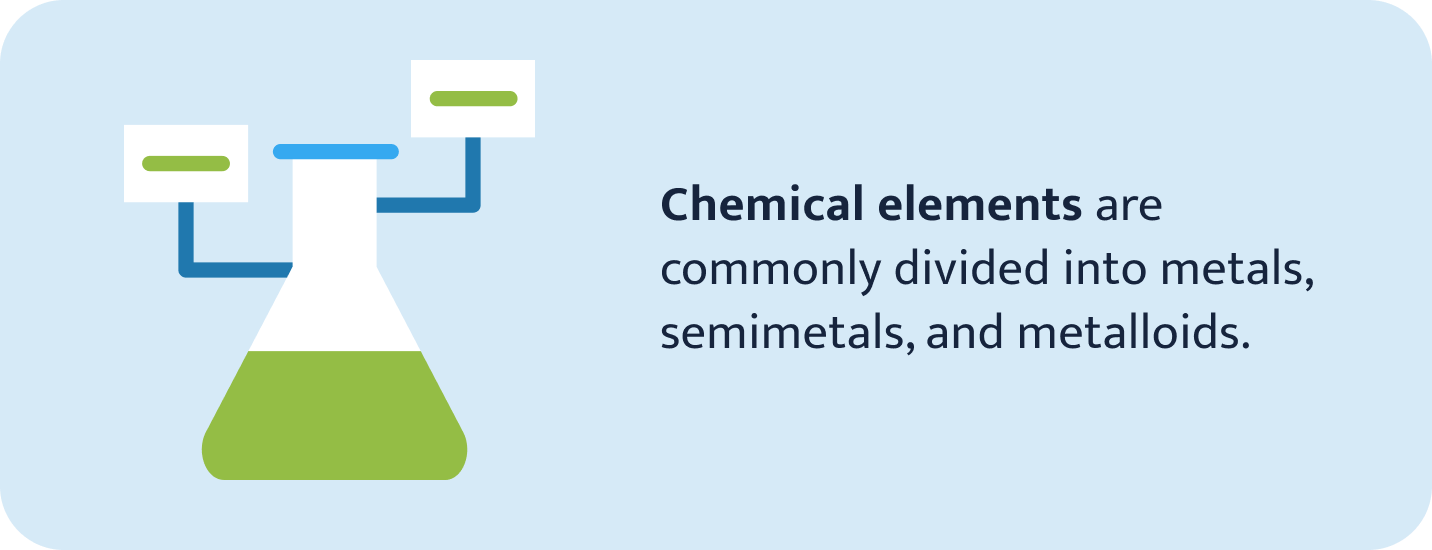
- Physical chemists examine the atomic level of matter. This branch uses physics to study the processes in chemical systems.
- Analytical chemists investigate what matter consists of. They look for new analyzing procedures and ways to enhance existing ones.
- Biochemistry studies the fundamental biological systems. It improves our understanding of essential medical issues.
Now that we’ve sorted out chemistry basics, we can examine how to write about it. Whether you’re in high school or already in college, the following guide will help you compose an excellent chemistry paper!
✍️ Tips on How to Write a Chemistry Paper
Each subject has its own rules when it comes to writing papers. In chemistry, the organization is the key. That’s why the first step is to have your lab notes in order. Keep your notebook neat and tidy, and you will see that writing becomes much more manageable.
On top of that, it’s good to have an idea of what an excellent paper should be like. There are three major points you should keep in mind: objectives, style, and structure.
- Objectives. Your goal is to identify and convey valuable information. If you want to share it with others, it should be presented as credible scientific work.
- Introduction. Say what your paper will be about.
- Methods. Present the methods and materials you use.
- Results. Describe what you observed during the experiment.
- Discussion. Analyze the results and summarize the relevance of your study.
- Style. Grammatically correct writing is a must. Your style should be formal, concise, and clear. Use the right tense: write your methods and results in the past. For general truths, you can switch to the present.
Finally, don’t forget that for any type of writing, the right topic is crucial. For inspiration, check out our excellent chemistry paper topics!
- The history of neurochemistry
- Astrochemistry vs. astrophysics
- Is radiochemistry a dying field?
- Pros and cons of being a biochemist
- New concepts of chemical engineering
- What makes quantum chemistry difficult?
- The importance of agricultural chemistry
- The impact of WW2 on computational chemistry
- Ernest Rutherford’s contribution to nuclear chemistry
- Computer chemistry vs. computational chemistry
🔬 General Chemistry Topics to Write About
Chemistry surrounds us in our everyday life. Have you ever seen moldy bread or boiling water? That’s chemistry in action. Have a look at these 30 easy topics for an introduction into chemistry:
- What happens to your body when it lacks vitamins?
- How does acid rain form?
- Understanding pheromones: how do they affect humans?
- Explain what atoms are made of.
- Ionic and covalent compounds: a comparison.
- How do you solve stoichiometry problems?
- Give an overview of the states of matter.
- A delicate balance: how do chemicals in our brains create moods?
- Describe the noble gas configuration.
- Marie Curie and her extraordinary legacy.
- An introduction into acids and bases.
- Write about hydrologic cycles.
- What happens when a substance oxidizes?
- Explain substitution reactions.
- Compare the Bohr model with the plum-pudding and the Saturnian models.
- How does a Geiger counter work?
- Describe the significance of Rutherford’s gold foil experiment.
- How Michael Faraday forever changed the scientific landscape.
- What does Prout’s hypothesis state?
- The history of european alchemy.
- What are the periodic trends?
- Explain how to analyze amino acids using protein hydrolysis.
- What do catalysts do?
- Everything about lab safety.
- The radium craze of the early 20th century.
- How does substance abuse impact your body?
- Why is it essential to study chemistry in high school?
- Reaction rates: how do we define them?
- Before chemistry: ancient philosophy of things changing.
- Examine how radioactive decay occurs.
🧑🥼 Chemistry Projects Topics for Science Fair
Experiments are, without a doubt, the most fun part of chemistry. It’s exciting to watch colorful substances fizzle and bubble. If you need ideas for your next project, look no further. Just make sure to follow safety rules!
- Discover what determines the color changes when iodine and starch react.
- Find out how to make photosynthesis visible.
- Try to synthesize Aspirin.
- Develop film and explain how you did it.
- Fiddle a wire through an ice cube without drilling holes.
- Assess the quality of water and find out what contaminates it.
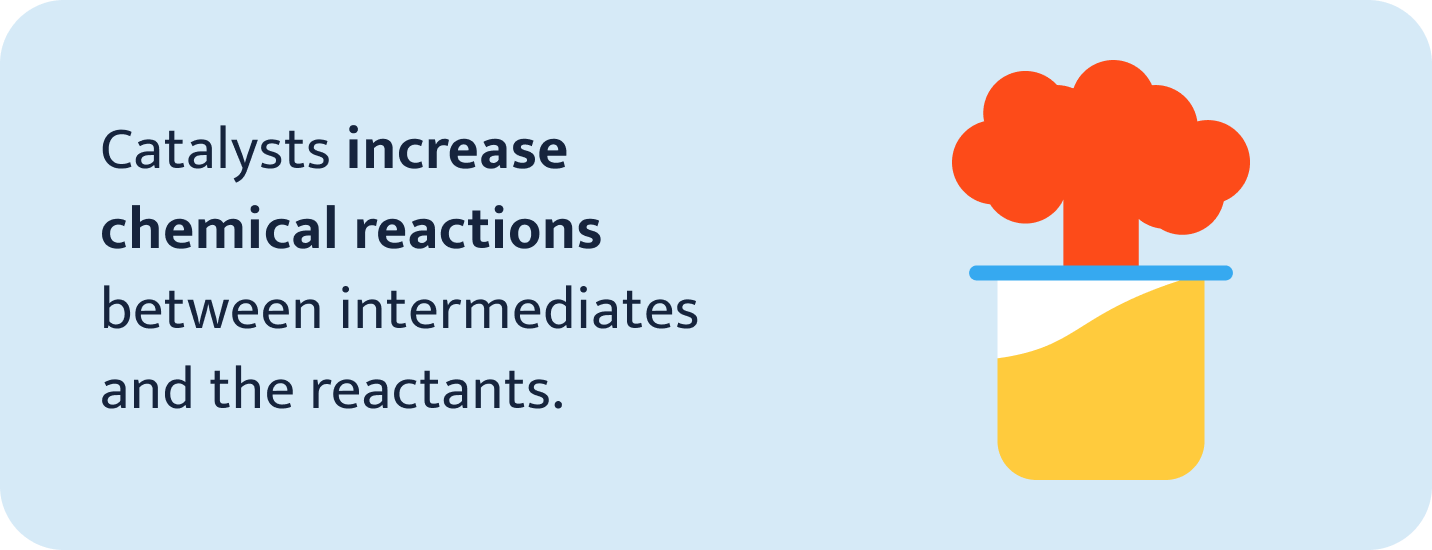
- Extract plant oil and study its properties.
- Observe what happens if you dye wool with different colors.
- Learn how to make a solution change color.
- Determine the amount of caffeine in various sorts of tea.
- How do you produce biogas or liquid from organic waste?
- Analyze the contents of your toothpaste. Can you find any health hazards?
- Make a water filter from scratch.
- Why does lemon juice stop apples from browning?
- Make a safe smoke bomb.
- Document the process of growing crystals.
- Identify the pollutants in the air around you.
- What makes a flame change color?
- Biometric technologies: how do they work?
- Study invisible ink. What makes it disappear?
- Wine: how do its chemical compounds relate to its taste?
- Emulsions: how to make and break them.
- Compare the effectiveness of different vegetable oils in biodiesel manufacturing.
- Assess the residue of pesticides in vegetables from various markets.
- Measure the density of soft drinks. How does sugar affect it?
- Conductivity: what types of solutions are the best electrical conduits?
- Food and science: how much energy do nuts and chips produce when burned?
- Analyze your hair and check for nutrients.
- Examine what soap needs to foam properly.
- Change a penny’s color to gold.
🤔 Advanced Chemistry Topics for an Essay
Once you’ve mastered chemistry’s fundamental concepts, you’re ready for the advanced part. Here, you will explore topics such as kinetics, equilibrium, and thermodynamics. Consult our list for 30 interesting advanced chemistry topics:
- Polymers: what do we use them for?
- How do spectroscopes work?
- What chemical information can we find in meteorites?
- Spectroscopy and its many applications.
- Schrödinger’s Cat: what did it reveal about radioactive decay?
- Examine the properties of imino-disaccharides.
- The importance of carbohydrate-protein interactions in immunology.
- CRISPR: how does it work?
- Compare the types of noncovalent bonding.
- Investigate how molecular recognition can be produced synthetically.
- Describe the impact of nanotechnology.
- How does nanoscience change our lives?
- What does Le Châtelier’s principle state?
- CBD: what advantages does it have?
- What causes a chemical process to result in equilibrium?
- Compare the types of equilibrium.
- BPA : how toxic is it?
- Behavior of ideal vs. non-ideal gases.
- Magnetism and coordination compounds.
- The principles of molecular orbital theory.
- Why do certain compounds not exist?
- How does water recycling work?
- Cloud seeding: when is it useful?
- What causes the weather to change?
- Why do some plants rely on photosynthesis more than others?
- Describe the properties of hydrogen.
- Explain the connection between collision theory and concentration.
- How do the ab initio methods work?
- Chemistry and the brain: impact of neurotransmitters.
- Examine the dopamine hypothesis of schizophrenia.
🦠 Biochemistry Topics to Research
Have you ever wondered what chemical processes happen inside living organisms? Here’s an example: when we breathe, we inhale oxygen and exhale carbon dioxide. Biochemistry combines biology and chemistry to find out how life works on a molecular level. It’s a life science that deals with the cells, proteins, and lipids that form the core of every being. Clinical research highly benefits from biochemical knowledge.
- Explain enzyme inhibitors and their mechanisms.
- What are the benefits of epigenetics?
- Enzyme activity: how can you regulate it?

- Understanding the role of lipase in pathophysiological processes.
- The chemical processes behind metabolism.
- Amino acids: industrial applications.
- Consequences of a protein deficiency.
- Dietary supplements: help or hazard?
- How does the Citric Acid Cycle work?
- Glycolysis : how does it convert glucose?
- How do solutes move through biological membranes?
- Explain the sodium-potassium pump.
- Describe networks and alliances of the biotechnology industry.
- How does the body react to chlorine exposure?
- Cells gone rogue: the origins of cancer .
- Investigate the functions of hormones.
- How can we develop new vaccines?
- Discuss the ethics of stem cell research.
- The legacy of Dolly the sheep.
- SCNT: process and applications.
- What are the chemical compounds of blood ?
- How do you treat hemophilia?
- The development of prokaryotes vs. eukaryotes.
- Discuss the cloning of a DNA fragment and Southern blotting.
- How does oxidative phosphorylation synthesize ATP?
- Compare the three types of crystallography.
- Copying DNA: the principles of PCR.
- How does recombination repair work?
- What causes redoximorphic features in various soils?
- Obtaining protein structures with x-ray crystallography.
🧬 Organic Chemistry Topics for Papers
Organic chemistry serves as the foundation for biochemistry. It is centered on carbon, which is essential to life. Carbon often bonds with other elements as well as itself. That’s what makes it the basis for all organic structures.
- Describe the properties of a chiral molecule.
- Atmospheric chemistry: methods and observations.
- Write about antioxidant potency of polyphenol-rich beverages.
- Enantiomers and the Fischer projection practice.
- Investigate possible relationships between stereoisomers.
- What are the benefits of chemoenzymatic synthesis?
- Explore the history of vitalism.
- The production of chemicals using carbon-carbon bond-forming reactions.
- Hydrocarbon: types and reactions.
- Examine the four essential types of organic compounds.
- How do free-radical reactions work?
- Pathogens: infection cycle and disinfection methods.
- Give examples of esters in everyday life.
- How do you turn alcohols into alkyl halides?
- Mechanisms of aerosol formation.
- Recent discoveries in molecular tuning.
- Chemical warfare: the dark side of organic chemistry.
- What makes a plant poisonous?
- What makes aromatic compounds unreactive?
- Phosgene: what makes it toxic?
- Explain the mechanism of the Diels-Alder Reaction.
- Alpha carbon reactions: when do aldol condensations occur?
- How do you identify organic compounds using infrared spectroscopy?
- Bonds as springs: the mechanical molecular model.
- Antibiotic resistance: causes and effects.
- Identify factors that influence proton chemical shifts.
- What does the electron dot structure show?
- The properties and reactions of functional groups.
- What defines a compound as aromatic?
- How do you name amines?
♻️ Green Chemistry Topics to Write About
If you’re concerned with sustainability, green chemistry is your area of choice. It finds ways to make chemical products less harmful to the environment. Research is done at every stage, from the product’s design to its disposal.
- How do you prevent pollution?
- What do you do with toxic waste?
- Discuss the twelve principles of green chemistry.
- Source reduction: what are the most effective ways?
- Biomimicry: is it the best way to sustainability?
- Eco-friendly packaging and its issues.
- Compare the effectiveness of various materials used in solar cells.
- What are the advantages of molar efficiency?
- Ionic liquids: are they the future of eco-friendly reagents?
- The U.S. acid rain program: pros and cons.
- How can the toxicity of paint be reduced?
- Innovative ways to avoid pesticides in agriculture.
- What are the types of bio-based renewable feedstocks?
- Are bioplastics beneficial for the environment?
- How do metathesis reactions help reduce greenhouse gas emissions?
- Computer chips: how do we make them more sustainable?
- Alternative energies: making fuel from chicken feathers.
- Is carbon capture effective?
- Will cultivated meat become a green alternative to traditional farming?
- How does the Plantrose process work?
- Discuss the petroleum products problem in the U.S.
- What are efficient ways to extract and use critical elements more
- How efficient is artificial photosynthesis?
- What are the best ways to remove carbon pollution?
- Electrocatalysis as a way to generate and consume fuels.
- Discuss the most pressing issues in green chemistry today.
- How does LCA work?
- What are efficient ways to extract and use critical elements more sustainably?
- Recycling and recovery of plastic.
- Describe the advantages of Levulinc Acid use.
- How can we make nuclear energy more viable?
⚗️ Inorganic Chemistry Topics for a Paper
Metals and minerals are parts of inorganic chemistry. Scientists in this field want to understand the behavior and properties of inorganic compounds. Practical uses include the manufacturing of fertilizers, adhesives, and coatings.
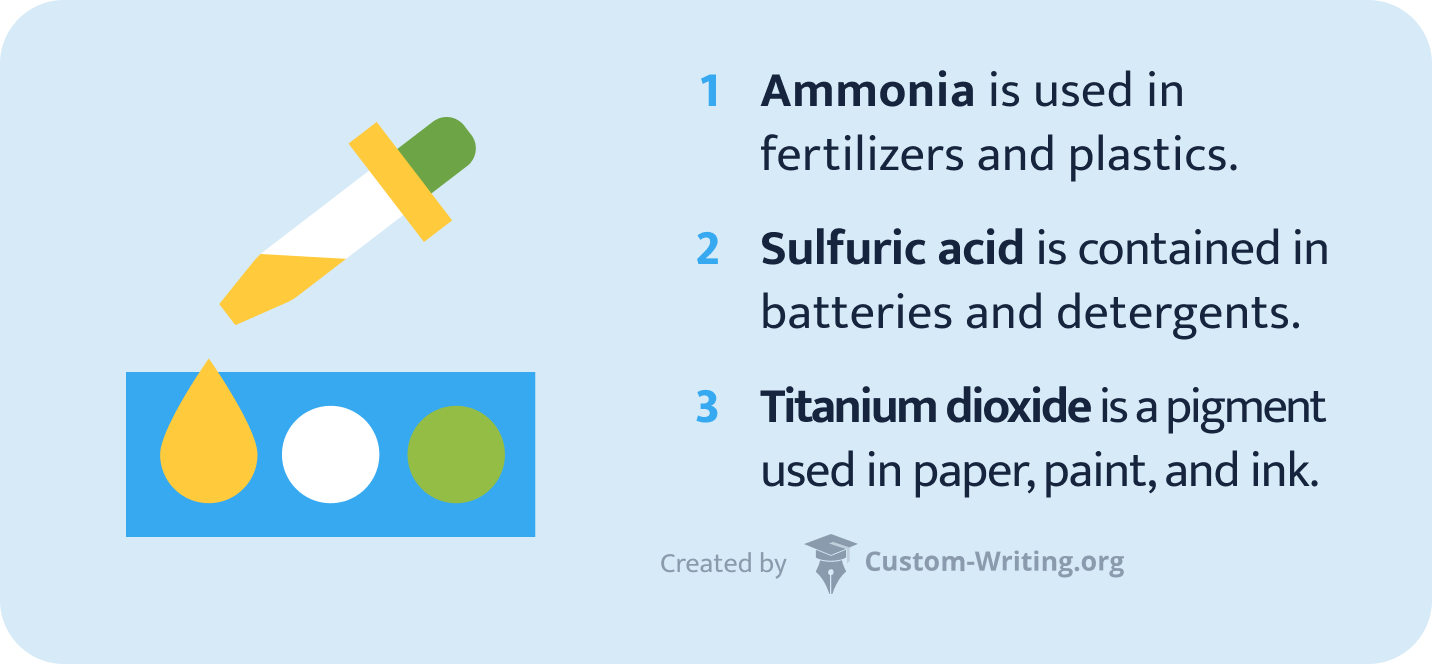
- What are the types of nucleosynthesis?
- In which ways are chemicals able to bond?
- How does molecular symmetry predict the chemical properties of a molecule?
- Vibrational spectroscopy: what is it used for?
- Discuss the importance of inorganic compounds in biochemistry.
- The history of atomic theory: an overview.
- Hematite: matter and mineral.
- The peculiarities of hydrogen bonds and polarity.
- What are the uses of point groups in inorganic chemistry?
- Determine the factors that impact Brønsted-Lowry acidity.
- How does HSAB explain reaction mechanisms?
- What is lattice energy, and how can you measure it?
- How do you use coordination compounds as catalysts?
- Red Ferrosols: soil management issues.
- Examine the drawbacks of the crystal field theory.
- Define the selection rules for vibrational transitions.
- What is the most effective way to grow synthetic diamonds?
- How do you use the angular overlap model?
- Explain ligand effects.
- The magnetic properties of transition metal oxides.
- Gold: how does it serve medicine?
- The use of chemistry in jewelry manufacturing.
- How does the chemical structure of a gemstone determine its color?
- Alexandrite: what makes it so unique?
- How do ligand substitution reactions work?
- Determine the properties of the light types.
- What are the fundamental laws of photochemistry?
- What causes phosphorescence?
- Alloys: what are their benefits?
- The history of brass and its usage.
⚛️ Nuclear Chemistry Topics for an Essay
You’ve probably been x-rayed before. It means you’ve been exposed to radiation. Nuclear chemistry seeks to understand radioactivity-related processes. One of atomic science’s most critical problems is the disposal of radioactive waste.
- How do you calculate an element’s half-life?
- Compare the three different types of radiation.
- What are the common uses of radioactive elements?
- How do we know that a nucleus is stable?
- Fukushima and Chernobyl disasters: a comparison.
- How do elements transmute in the process of nuclear fission?
- Cold fusion: will it ever be possible?
- Radiation: how does it harm biological systems?
- Describe the types of decay.
- Nuclear waste: reprocessing, disposal, and transportation.
- How is nuclear chemistry used in medicine?
- Ways to destroy toxic organic compounds using irradiation.
- Interactions between water and radioactive elements.
- How are chemosensors used in radiation chemistry?
- What are the biological applications of radiochemistry?
- The nuclear fuel cycle: managing the disposal of nuclear fuel.
- Discuss reactive hazards in the chemical industry.
- Compare the efficiency of different extraction methods.
- Fission products and surfaces: what happens when 9TcO2 gets in contact with steel?
- Isotopic chemistry: what distinguishes it from nuclear chemistry?
- Explore the history of NMR.
- Henri Becquerel and the discovery of radioactivity.
- The relevance of hydrogen in nuclear fusion.
- What causes radioactivity?
- The adverse effects of ionizing vs. non-ionizing radiation.
- Why are some people skeptical about the term “nuclear?”
- The Big Bang: how did it create the Universe as we know it?
- Discuss the unsuccessful efforts in nuclear arms control.
- How does radiocarbon dating work?
- Mass spectrometry: ionization techniques.
🧮 Analytical Chemistry Topics for Essays
The matter comes in all forms and shapes. It can be a compound or a single element. If you want to know how matter is structured, analytical chemistry has the answer. Scientists of this branch ensure that our food and other products are safe to consume.
- How does activation analysis work?
- Why is analytical chemistry important for the environment?
- How do you find iron in a mixture of metals?
- What are the ways to measure the amount of a specific substance in a compound?
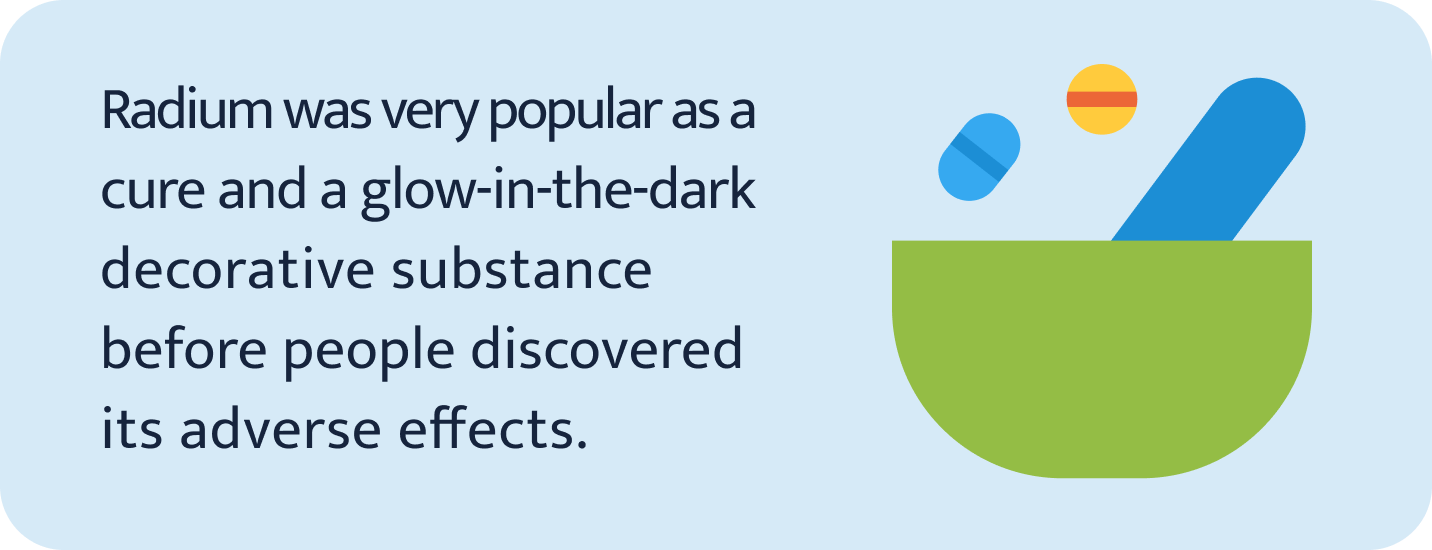
- Identifying hazardous substances in cheese.
- A simple way to separate chemical compounds: gas chromatography.
- Aspirin vs. Ibuprofen: comparing the chemical mechanisms of pain relievers.
- Genetically modified foods and their impact on human health.
- Food allergies: where do they come from?
- The best techniques for quantitative chemical analysis.
- What are the standard techniques to measure the endpoint of a titration?
- Mass-based analysis: gravimetric analysis.
- How do you neutralize WVO?
- Drug safety approach in administration and nursing.
- Describe the three types of electroanalytical methods.
- How do you measure temperature using a calorimeter?
- Understanding thermodynamics: the Carnot cycle.
- The process of analyzing salt.
- How do you identify the shelf life of a medicine?
- Ways to find adulterants in drugs.
- Compare the healthiness of bottled water based on its chemical compounds.
- How can you test cholesterol in blood samples?
- Examine how analytical chemistry is used in forensic science.
- What are the advantages of spectrochemical methods?
- How do you detect pesticides using immunoassays?
- Miniaturization: how does it advance analytical chemistry?
- Capillary Liquid Chromatography: an overview.
- Immunochemistry: applications in environmental analysis.
- The development of analytical technology in the past 20 years.
- Explain how to determine PAH sources in soil.
🧪 Physical Chemistry Topics for Papers
Is chemistry not enough for you? Try combining it with physics! For physical chemists, it is crucial to understand how molecules and atoms act. They use various models to study the structure and behavior of these tiny particles.
- Explain how to determine an atom’s electron configuration.
- Describe the structure of an atom.
- Isotopes: why do they exist?
- What is the Time-of-Flight principle?
- How do you calculate the mass of an atom?
- Define successive ionization energies.
- What are the gas laws?
- Equation of state: ideal vs. real gases.
- Explain why the Earth is considered a closed thermodynamic system.
- What is the Avogadro constant?
- The difference between empirical and molecular formulae.
- Calculating percentage yields: balanced equations.
- How do intermolecular forces affect the melting point of a substance?
- What are the four types of crystal structures?
- Define the types of forces that exist between molecules.
- Explain how to relate the melting point and conductivity of a substance to their type of structure.
- What is fire in terms of chemistry and thermodynamics?
- Reasons why molecules with polar bonds might not have a permanent dipole.
- How do internal combustion engines work?
- Endothermic or exothermic? Determining enthalpy change.
- What are the applications of Hess’s law?
- Explain the use of mean bond enthalpy.
- When does a collision not cause a reaction?
- How does temperature affect the reaction rate?
- How do catalysts work?
- Describe what Born-Haber cycles are used for.
- Explore the history of thermochemistry.
- Give examples of quasi-static processes.
- The study of chaos: calculating entropy.
- When is a reaction reversible?
We hope that you found a topic you like. Now good luck with your essay!
You might also be interested in:
- 501 Research Questions & Titles about Science
- A List of 212 Brilliant Research Proposal Topics to Investigate
- 220 Best Science and Technology Essay Topics to Write About
- A List of 300+ Research Paper Topics: Interesting & Unique
- 281 Best Health & Medical Research Topics
- 150 Best Environmental Essay Topics & Questions
- 625 Excellent Presentation Topics & Tips
- 560 Unique Controversial Topics & Tips for a Great Essay
- Chemistry: Encyclopedia Britannica
- Different Types of Chemistry: University of Wisconsin
- General Chemistry Topic Review: Purdue University
- General Chemistry: University of Tennessee Chattanooga
- Topics in Advanced Chemistry: University of Otago
- Biochemistry Topics List and Learning Tools: Vital-IT
- Organic Chemistry: Khan Academy
- Basics of Green Chemistry: US EPA
- Exploring the Role of Green Chemistry at a Research University: Harvard
- Inorganic Chemistry: American Chemical Society
- Advanced Inorganic Chemistry Syllabus: Westfield State University
- Nuclear Chemistry: University of Pennsylvania
- Analytical Chemistry: American Chemical Society
- Physical Chemistry: AQA
- Share to Facebook
- Share to Twitter
- Share to LinkedIn
- Share to email

Culture is a set of knowledge, behaviors, and beliefs shared by a group of people. You would probably agree that it’s an integral part of humanity. It’s no wonder that students are often assigned to write about it. That’s why we came up with a list of interesting and creative...

The Earth is a complex system. To understand it, geologists examine the lithosphere and its layers. They trace our planet’s history by using physical and chemical methods. At the same time, geographers observe environmental patterns. They also focus on the interaction between humans and nature. Keep reading to find out...

Mathematics is the science of numbers and shapes. Writing about it can give you a fresh perspective and help to clarify difficult concepts. You can even use mathematical writing as a tool in problem-solving. In this article, you will find plenty of interesting math topics. Besides, you will learn about...

Cause and effect essays examine how an event happened and what consequences it had. Gaining weight after eating lots of fast food is an example of a cause-and-effect relationship. Possible topics cover a variety of subjects ranging from mental health to history and politics. This article gives you an outline...

An analysis essay aims to break down the subject in order to understand it. You can choose to analyze a text, a process, or an idea. This article will help you write a great essay! Selecting an interesting topic makes writing a lot easier. We’ve prepared a list of excellent...

Everybody knows that being healthy requires effort. We should exercise regularly and maintain a balanced diet. However, the reward is worth it. A healthy lifestyle prevents chronic illnesses and leads to better body performance. Besides, if you improve your physical well-being, your mental health will strengthen as well! In this...

Our code of ethics is derived from what we think is right or wrong. On top of that, we have to agree to the moral standards established by the society we live in. Conventional norms generally label theft, murder, or harassment as bad. However, there are many influences that impact...

A definition explains the meaning of a term or a concept. In a dictionary, you’ll find a definition in a single sentence. A definition paper, however, encompasses several paragraphs. Such an essay, amongst other things, can include personal experience and examples. To write a successful definition paper, you need to...

As simple as it is, the purpose of the descriptive essay is to explain or portray its subject. It can focus on any topic or issue you want to write about. Be sure that any middle school, high school, or college student can manage this type of creative writing assignment!...

Rhetorical analysis essay focuses on assessing the method used for delivering a message. This assignment isn’t about giving an opinion on the topic. The purpose is to analyze how the author presents the argument and whether or not they succeeded. Keep reading to find out more strategies and prompts for...

A narrative essay tells a story about a series of events. At the core of this kind of essay can be a personal experience or a fictional plot. Any story can be a basis for a narrative essay! Narratives can look similar to descriptions. Still, they are different. A descriptive...

Similar to the instructions in a recipe book, process essays convey information in a step-by-step format. In this type of paper, you follow a structured chronological process. You can also call it a how-to essay. A closely related type is a process analysis essay. Here you have to carefully consider...
Your browser is not supported
Sorry but it looks as if your browser is out of date. To get the best experience using our site we recommend that you upgrade or switch browsers.
Find a solution
- Skip to main content
- Skip to navigation

- Back to parent navigation item
- Collections
- Sustainability in chemistry
- Simple rules
- Teacher well-being hub
- Women in chemistry
- Global science
- Escape room activities
- Decolonising chemistry teaching
- Teaching science skills
- Post-lockdown teaching support
- Get the print issue
- RSC Education

- More from navigation items

Source: © Monty Rakusen/Getty Images
Fuel curiosity in science careers

- No comments
Use these 7 strategies to bring science learning to life by linking new topics to exciting career pathways

I want my students to engage with the science they’re learning. I’ve found introducing the idea of inspirational career paths through a variety of teaching methods is a great way to begin a new – potentially daunting – area like nuclear chemistry, for example. Use my tips to inspire your students, whatever the topic.
1. Link to news
Starting to teach nuclear chemistry? Connect it to real-world context by finding a thought-provoking news article and using it as a starting point for your lesson.
Articles on radioactive waste , new nuclear power plants or nuclear fusion success will introduce the idea that nuclear chemistry is both relevant to students’ lives, and a controversial topic. Explain which career paths students could choose to work in these fields and invite them to formulate arguments for or against based on the latest scientific research. This method can help demystify the subject and boost confidence while demonstrating how vital a career in nuclear chemistry is to a country’s economy.
2. Make it relatable
Before plunging into the facts around radioactivity, ask yourself what students will come across in their daily lives that you could link to the topic. News sources work well here too, but you could also provoke interest by explaining that certain foods are a natural source of radioactivity and ask students to research these – examples are bananas and Brazil nuts. Then you could move onto household items that may be a surprising source of radiation, like smoke detectors, which can be linked to isotopes, then to radiation.
3. Invite an expert
Meeting a real-life scientist with a passion for their subject will achieve a much higher level of student engagement than reading a textbook ever could. Do any of your students have a family member who works in a field they’re studying? Can you invite them to join a class to explain their role and the educational path they took to get there, before answering student questions? Or why not reach out to a local company ? They may be willing to send someone to speak to your class for their community engagement.
4. Create simple slides
Create one-page PowerPoint slides to introduce jobs related to chemistry topics that might inspire your students. Include a brief description, salary range and working hours. Use an image of a person doing the job who your students can relate to. The National Careers website has plenty of examples that you could use, including chemical engineer , nuclear engineer , nuclear technician and medical physicist . You’ll also find more than 100 job profiles on A Future in Chemistry .
Download and print
Posters to display in your classroom of real-life chemists to spark your students’ interest and demonstrate how they can make a difference to the world with science.
If a non-chemist visits, talk to the rest of your science team or department to share resources around career choices.
5. Build inclusivity
Find researchers in the field whose lives and experiences will show your students that a career in science is possible whatever your gender or background. Dispel assumptions that chemistry is a career dominated by men by sharing the stories of Biba Chowdhuri , the first Indian woman to gain a PhD in physics, and chartered chemist Ellie Laney-Bolton , who was at the forefront of keeping nuclear power stations in the UK safe and operational during the Covid-19 pandemic. You could also include the biography of Jabir ibn Hayyan , one of the founders of modern pharmacy, or highlight a less well-known role such as a radioactive waste consultant .
6. Point to career pathways
It can be hard for students to imagine themselves in a jobs like being a nuclear physicist, for example, so give them a practical guide to achieving it in ways that may not involve a traditional university degree. You could mention workplace apprenticeships and T-levels . On one T-level course in the nuclear sector , students spend 80% of their time in the workplace and 20% on classroom learning.
Explain the university route, highlighting entry requirements, but also let students know about degree apprenticeships.
7. Enrich learning
As we know, achievement isn’t all about academic textbooks. Hands-on learning is a great way to stimulate enthusiasm for careers in science. So if your topic is nuclear chemistry, you could send for a University of York LEGO nuclide chart loan kit . Use it to make learning even more enriching.
Outreach , such as science clubs, masterclasses and trips to places of interest will also help provide your students with the fully-rounded education they need when beginning their journey towards a scientific career.
More inspiration
For more careers information and inspiration to share with your students, visit:
- Careers in chemistry
- Careers in physics
- National Careers Service
- Rolls Royce
- National Nuclear Laboratory Apprenticeships
- Chemistry careers resources for teachers
Mustafa Mahmoud is an RSC scholar and teaches chemistry and physics

- Careers guidance
- Lesson planning
Related articles

Longer classes: what’s the verdict?
2024-05-20T08:00:00Z By Angeli Mehta
Discover why some schools have switched to fewer, longer lessons in a school day – and how it’s going

5 ways to use structure strips to scaffold learning
2024-05-08T05:08:00Z By Kristy Turner
Boost your students’ ability to digest topics and write independently with these margin-sized prompts

Escape the classroom: and revise chemistry knowledge
2024-05-03T09:21:00Z By Hayley Russell
Challenge your students to break out of the lab and prepare for exams
No comments yet
Only registered users can comment on this article., more from ideas.

Use AI to successfully assess students’ understanding
2024-03-20T05:00:00Z By David Paterson
Discover how to quickly and effectively generate multiple choice questions on key chemistry topics

5 ways to successfully teach structure and bonding at 14–16
2024-03-06T10:33:00Z By Kristy Turner
Strengthen students’ grasp of the abstract so they master this tricky topic and effectively tackle exam questions

Reduce your workload with ChatGPT
2024-02-07T09:32:00Z By Dan Beech
Use these tried-and-tested tips to save time and boost your teaching practice
- Contributors
- Print issue
- Email alerts
Site powered by Webvision Cloud
City holds Downtown South Bend 2045 Plan presentations during 'Design Week'

SOUTH BEND — Residents and other stakeholders are invited to review preliminary design concepts and share their ideas for the next stage in the development of the Downtown South Bend 2045 Plan during a series of public meetings through June 6.
Design Week presentations take place at the following locations and times:
• Design Week Public Kickoff: 5:30 to 7:30 p.m. June 3 at the Howard Park Event Center, 219 S. St. Louis Blvd.
Overview of the week’s activities, review of input received during the February/March visioning workshops and through the online survey, opportunity to comment on key themes that will help form the downtown plan.
• Open House: noon to 1 p.m. Tuesday, June 4 at the Howard Park Event Center, 219 S. St. Louis Blvd.
A brief presentation of initial design ideas, opportunity to comment on initial plan direction.
• Final Presentation: 6 p.m. Thursday, June 6 at the Leighton Auditorium, St. Joseph County Public Library’s Community Learning Center, 305 S. Michigan St.
Full presentation of draft downtown plan concepts and priorities.
Downtown to the Dome: Seven ways that this new trail could unite Notre Dame, South Bend and other trails
In a press release, Mayor James Mueller asked for the public’s input in designing the future of downtown South Bend, which, he said, “is on the cusp of transformational growth” because of the multi-billion-dollar investments announced by GM-Samsung and Amazon Web Services west of the city in the Indiana Enterprise Center.
“The UDA team is excited to be back in South Bend spending the week designing with the community and stakeholders,” Megan O’Hara, principal at Urban Design Associates, said in the press release. “We look forward to building on the ideas we’ve heard through surveys, public meetings, and workshops to facilitate a collaborative vision for the future of Downtown South Bend."
For more information on the Downtown South Bend 2045 plan process, visit together.southbendin.gov/downtownplan .
Got any suggestions?
We want to hear from you! Send us a message and help improve Slidesgo
Top searches
Trending searches

26 templates

49 templates

11 templates

71 templates

15 templates

first day of school
68 templates
Science Subject for High School - 9th Grade: Chemistry
It seems that you like this template, science subject for high school - 9th grade: chemistry presentation, free google slides theme, powerpoint template, and canva presentation template.
Future scientists always start somewhere, for example, in high school! Let's make your chemistry lessons more dynamic with a slideshow that can help with your lecture. It contains several illustrations of lab objects, a slide frame composed of squares and green backgrounds. Don't worry about the layouts because they're easier to edit than you think. Take a look at the periodic table we've also included! That will save you some time!
Features of this template
- 100% editable and easy to modify
- 35 different slides to impress your audience
- Available in five colors:Blue, Green, Pink, Yellow and Orange
- Contains easy-to-edit graphics such as graphs, maps, tables, timelines and mockups
- Includes 500+ icons and Flaticon’s extension for customizing your slides
- Designed to be used in Google Slides, Canva, and Microsoft PowerPoint
- 16:9 widescreen format suitable for all types of screens
- Includes information about fonts, colors, and credits of the free resources used
How can I use the template?
Am I free to use the templates?
How to attribute?
Combines with:
This template can be combined with this other one to create the perfect presentation:

Attribution required If you are a free user, you must attribute Slidesgo by keeping the slide where the credits appear. How to attribute?
Related posts on our blog.

How to Add, Duplicate, Move, Delete or Hide Slides in Google Slides

How to Change Layouts in PowerPoint

How to Change the Slide Size in Google Slides
Related presentations.

Premium template
Unlock this template and gain unlimited access

Register for free and start editing online
Michigan basketball's Dusty May: Establishing chemistry 'the most important part' of summer

Dusty May, the new Michigan basketball coach, has been pleasantly surprised with how frequently he has been, well, pleasantly surprised since his arrival in Ann Arbor.
For starters, he acknowledged to reporters last month he didn't anticipate the roster and staff coming together quite as quickly or cohesively as they did over the spring, when he not only landed coaches from coast-to-coast but eight key transfers the staff targeted from NCAA tournament teams, arch rivals and everywhere in between.
Secondly, the food is top-notch, he told the program's play-by-play voice Brian Boesch on the latest episode of the team's in-house "Defend The Den" podcast. When May's not taking recruits out to The Chop House or Ruth's Chris Steak House downtown, he said he's been enjoying "a little Peruvian place" (Culantro) on Main Street and joked that he made his way to Frita Batidos for what felt like 10 times in his first 12 days in town.
ON THE GRIDIRON: Here's what Wink Martindale did when Michigan football had to jump into transfer portal
With all that great food, there has to be something to cancel it out. May was notorious for biking to work in Boca Raton, and while he's come to accept he won't be able to take two wheels to work during the season when the snow is on the ground, right now he's enjoying the bike lanes to get from the hotels he's stayed in to the athletic complex where his real work takes place.
The hope, he said, is that cycling can offset the caloric intake.
"I might have to get elastic pants to wear on the sideline," he joked. "I’ll be playing for the tie."
That seems about the only place May is willing to settle for a tie, as the first man who ever led Florida Atlantic to the Final Four is looking to return the Wolverines' basketball program to where it was not all that long ago; atop the collegiate landscape.
After turning over nearly the entire roster except for three players — graduate wing Nimari Burnett, senior forward Will Tschetter and graduate forward Jace Howard — May knows that growing cohesion and chemistry is not just a desire, it is a prerequisite for growing a successful program.
[ MUST LISTEN: Make "Hail Yes!" your go-to Michigan Wolverines podcast, available anywhere you listen to podcasts ( Apple , Spotify ) ]
U-M's summer program doesn't officially start until Monday, but players have been in and out of the facility on their own getting in some work. Recently, May saw the infancy stages of team growth during one of those afternoons.
"Rubin (Jones) came in this weekend," May said. "He's not enrolled in classes yet so he’s getting here earlier than he has to. Walk to the practice court and he and Vlad (Goldin) were just talking for 15 or 20 minutes, not working out.
"That’s the most important part of this summer. These guys getting to know each other as people, spending time with each other and then once it’s time to compete it’s a lot easier if you know you’re competing with a guy who really has your back and you know them as a person first."
The summer isn't just for the players getting to know one another. It's also for the coaches to get their first chance to see how their vision of bringing in various pieces from around the country actually translates into on-court cohesion.
May said that his staff did its due diligence when recruiting — he explained his strategy after identifying a target is to try and shoot holes in the plan and find the reasons it won't work, but that nobody had "any significant red lines" which would rule them out — but there's only one way to know for sure. And that will take place next week when the whole team comes together for the first time
"As far as the true relationship piece, that’s still a ways a way before we earn their trust and they earn our trust," he said. "We’re excited to see what makes these guys tick, what motivates them ... as a head coach I tell them I make more mistakes than all of them, so it’s a very safe place to learn and grow.
FALL IS COMING SOON: 100 Michigan football thoughts and questions for every day until the 2024 season begins
"We’re always either trying to get better or protect ego, so with our player and they know us, that’s what we pride ourselves on."
There is one player on the team who can now attest to this firsthand. Goldin, a 7-foot-1 center who played under May at FAU and became the face of the transfer portal class, has a long-standing relationship with May after spending three years together 45 miles north of Miami at FAU.
In addition to being one of the top centers in the nation — he averaged 15.7 points and 6.9 rebounds on 67.3% shooting from the floor — he also has the character May looks for and wants to see exemplified night-in and night-out.
Never more was this the case in May's mind than after an undisclosed game, when May called a timeout and drew up a last-minute play that went awry. It ended as an Owls' defeat.
"Walking back to do media I said, 'Vlad, I cost us that game with (my) decision making,' and right then and there he put his arm around me and said, ‘Coach, we win together, we lose together,'" May recalled. "We’re all in this together, the good, the bad, the ugly. That’s what a team is. We don’t say we’re family because we don’t get to choose our family.
"Our family, we’re born into, with a team we all get to choose who our team is and who our teammates are."
In addition to conditioning, the preseason months will be focused on establishing identity as far as tempo, pace and teaching the cutting principles of the free-flowing offense.
It's about laying the bricks of a foundation, finding out who complements each other and mixing and matching various personnel to create advantageous situations.
"If a guy proves to be a great shot blocker, that tells us we can be more aggressive in the full court," May said as an example. "We try to take a step back, look at our best players. What do they do well and what’s the strengths of our group and then really try to attack in those areas."
For as much as has been done, May is still in the process of getting settled into his new role. He mentioned how his family has finally purchased a home, but won't be able to get in for the next few weeks. It will be about that time when the team has gotten to know one another, and there are already plans for games, ice breakers and family trivia to get to know one another.
"We will have the guys over and watch the NBA playoffs together and break bread," May said. "More than anything else, like any relationship, it takes time, but we want our guys to work together with intentionality."
Contact Tony Garcia: [email protected] . Follow him at @realtonygarcia .
Your browser is not supported
Sorry but it looks as if your browser is out of date. To get the best experience using our site we recommend that you upgrade or switch browsers.
Find a solution
- Skip to main content
- Skip to navigation
- hot-topics Extras
- Newsletters
- Reading room
Tell us what you think. Take part in our reader survey
Celebrating twenty years
- Back to parent navigation item
- Collections
- Water and the environment
- Chemical bonding
- Antimicrobial resistance
- Energy storage and batteries
- AI and automation
- Sustainability
- Research culture
- Nobel prize
- Food science and cookery
- Plastics and polymers
- Periodic table
- Coronavirus
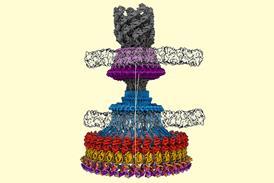
- More from navigation items
New metal-free MOFs show early promise for nuclear chemistry

- No comments
Metal-free organic frameworks, featuring inexpensive and abundant non-metallic elements, have been designed and then made with the help of computational crystal-structure prediction software.
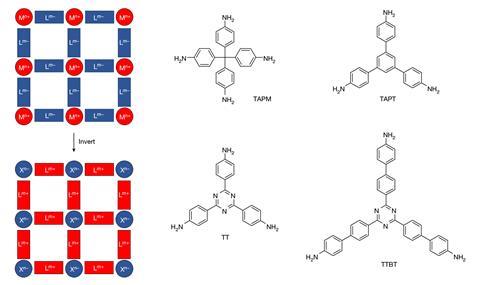
Source: © Megan O’Shaughnessy et al 2024
Most MOFs (top) comprise positively charged metal nodes (M n+ ) and negatively charged organic ligands (L m− ). An inverse strategy (bottom) is to design organic salt frameworks with negatively charged nodes (X n− ) and positively charged organic linkers (L m+ )
It is hoped the new materials will have a range of applications such as catalysis, water capture and hydrogen storage and offer an alternative to their metal-based equivalents.
The researchers, who are based at the Universities of Liverpool, Southampton and Nottingham, used computational design methods in combination with synthetic know-how to develop non-metal organic porous framework (N-MOF) materials using non-metallic ions such as chloride.
‘We guided the discovery of these materials using a computational method called crystal structure prediction,’ said Graeme Day , an expert in chemical modelling at the University of Southampton. ‘This allows us to predict which non-metal salts will form stable porous frameworks, which salts will not and to anticipate the precise crystal structure in advance of experimental work. We don’t have to assume a specific geometry for the joints in the framework, which is a fundamental principle in MOF chemistry.’
The researchers said the new frameworks could be thought of as ‘inverted’ MOFs, in which the halide anions are analogous to the metal cations and that, like MOFs, they could be structurally diversified by using other counter-ions such as nitrates, sulfates and phosphates.

Some examples of the metal-free organic frameworks that were synthesised that use chloride (green) and bromide (brown) ions in the place of metals
The synthesis of these materials is also scalable, as it involves simple acid–base neutralisation, the researchers pointed out. They added that the first examples of these materials already showed ‘practical promise’, outperforming most MOFs for iodine capture, which is important for the nuclear industry.
Other applications could take advantage of the highly charged pore channels in the frameworks for proton conduction, catalysis, water capture or hydrogen storage.
M O’Shaughnessy et al , Nature , 2024, DOI: 10.1038/s41586-024-07353-9

More from Julia Robinson

‘Fire and devastation’: 50 years on from the Flixborough disaster what’s changed?

How to choose a university chemistry course

Physical chemistry textbook now free to download as a ‘gift’ to the community
- Inorganic chemistry
- Main group chemistry
Related articles
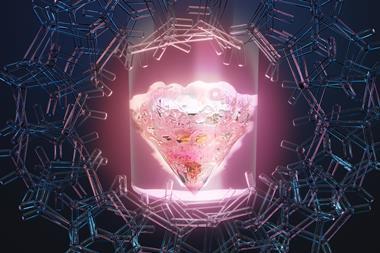
Promethium bond length completes picture of the size of lanthanides’ atoms
2024-05-24T08:30:00Z
By Kit Chapman

The 1920s chemists who thought they’d achieved the alchemists’ dream
2024-05-14T08:40:00Z
By Philip Ball

Single atom layer of gold produced for the first time
2024-04-19T08:30:00Z
By Julia Robinson

Simulations track how MOFs adsorb water, one molecule at a time
2024-04-10T08:30:00Z
By Clara Humann

Iodide addition could make high energy lithium-sulfur batteries commercially viable
2024-03-11T14:30:00Z
By Tim Wogan
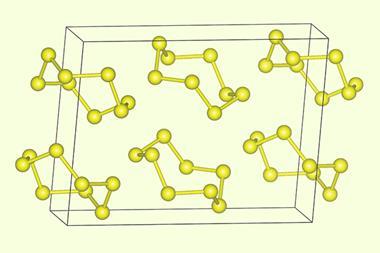
Debate surrounding amorphous selenium’s structure rumbles on
2024-03-04T15:02:00Z
By Victoria Atkinson
No comments yet
Only registered users can comment on this article., more from news.

Remembering Flixborough: 50 years on from one of the chemical industry’s deadliest disasters
2024-06-04T13:30:00Z
By Patrick Walter

Explainer: how chemistry powers heat pumps
2024-06-04T08:03:00Z

2024-06-03T08:30:00Z
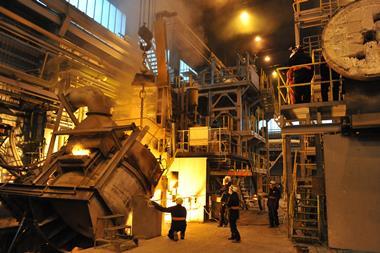
Recycled construction waste could cut cement and steel’s carbon footprint
2024-05-31T11:42:00Z
By James Urquhart
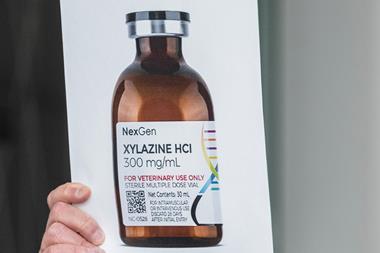
Conjugate vaccine curbs xylazine effects in mice
2024-05-31T08:51:00Z
By Laura Cooper

Calls to kill off the European Institute of Innovation and Technology mount
2024-05-30T13:30:00Z
By Angeli Mehta
- Contributors
- Terms of use
- Accessibility
- Permissions
- This website collects cookies to deliver a better user experience. See how this site uses cookies .
- This website collects cookies to deliver a better user experience. Do not sell my personal data .
- Este site coleta cookies para oferecer uma melhor experiência ao usuário. Veja como este site usa cookies .
Site powered by Webvision Cloud
Jennifer Aniston Shared Some Insight Into “Uncomfortable” Auditions Where She Was Asked To “Create Chemistry” And “Make Out With A Complete Stranger”
“If you’re a nervous auditioner to begin with, to then say, ‘Now let’s have you make out with a complete stranger’... Put some music on or something.”

BuzzFeed Staff
Some of Hollywood’s biggest stars have weighed in on intimate chemistry tests between actors — and whether they’re even necessary.

For the Hollywood Reporter’s Drama Actress Roundtable , Anna Sawai, Jennifer Aniston , Naomi Watts , Nicole Kidman, Jodie Foster , Brie Larson , and Sofía Vergara came together to discuss a range of topics relating to their careers. At one point, they were asked to comment on some of Anne Hathaway’s comments about chemistry tests during the movie audition process.

If you missed it, Anne told V magazine in April that in the 2000s it was “considered normal to ask an actor to make out with other actors to test for chemistry.”

“I was told, ‘We have ten guys coming today and you’re cast. Aren’t you excited to make out with all of them?’ And I thought, ‘Is there something wrong with me?’ because I wasn’t excited. I thought it sounded gross,” she said.
Despite finding the whole thing very uncomfortable, Anne admitted that she always went along with such situations out of fear of being perceived as “difficult” to work with.
“I was so young and terribly aware how easy it was to lose everything by being labeled ‘difficult,’ so I just pretended I was excited and got on with it. It wasn’t a power play; no one was trying to be awful or hurt me. It was just a very different time, and now we know better,” she said.
Discussing these quotes and how times have changed in the industry, all the actors at the roundtable agreed that they’d found themselves in similarly awkward situations during their acting careers. What’s more, Jennifer and Nicole suggested that chemistry tests aren’t even necessary to make an onscreen partnership believable.

“You can not have chemistry, and onscreen, it’s made. There’s a way you can shoot things,” Nicole said. “I think just relying on chemistry is lazy. There’s the writing. There’s the interaction. You can literally be directed through it.”
Still on the topic of chemistry tests, Jennifer said that the pressure can often dilute any natural chemistry between actors anyway, saying: “When you’re in an audition room, you’re already at a disadvantage.”

“Maybe you’d have chemistry with this person if you were in a different environment and not, like, ‘Create chemistry. Ready? Go!’” she continued.
Jen also described herself as a “terrible auditioner,” noting that her nerves would make chemistry tests all the more difficult.

“So, if you’re a nervous auditioner, to begin with, to then say, ‘Now let’s have you make out with a complete stranger,’ it’s very uncomfortable,” she told her fellow actors. “Put some music on or something.”
Although intimacy coordinators are widely used on movie and TV sets to make intimate scenes more comfortable for actors in situations like this, Jen has said previously that she’s been in the industry long enough to “figure” it out herself.

For context, an intimacy coordinator is a professional who comes on to set when actors are shooting sex scenes and anything else that could be potentially compromising, like scenes involving drug use or nudity. The role involves not only supporting the actors but also assisting in choreography and ensuring that the cast and crew feel comfortable as well.
Speaking about her first-ever sex scene on The Morning Show late last year, Jen told Variety : “They asked us if we wanted an intimacy coordinator. I’m from the olden days, so I was like, ‘What does that mean?’ They said, ‘Where someone asks you if you’re OK,’ and I’m like, ‘Please, this is awkward enough!’”

In response, Jennifer assured producers that she and her costar, Jon Hamm , were “seasoned” pros and therefore didn’t need any support. “We can figure this one out,” she recalled saying.

“I never felt uncomfortable,” she added. “Jon was such a gentleman, always — I mean every move, every cut, ‘You OK?’ It was also very choreographed.”
At the time, Jennifer was criticized online for her seemingly “ flippant ” attitude, which fans thought minimized the importance of intimacy coordinators’ work and how they keep actors safe on set.

“‘Where someone asks if you’re okay’ is such a minimizing and disrespectful description of what an intimacy coordinator actually does,” one person wrote on X in response to her Variety interview, amassing more than 45,000 likes.
“Having seen firsthand the kind of work an intimacy coordinator actually does, it actually deflates the awkwardness and helps actors build boundaries and trust with one another,” another person agreed . “If it’s not for her that’s fine but it’s legitimate work that can be effective for performance.”
You can find the Hollywood Reporter’s full Drama Actress Roundtable here.
Topics in this article.
- Jennifer Aniston
- Nicole Kidman
- Anne Hathaway

IMAGES
VIDEO
COMMENTS
Find the list of Chemistry Topics for Seminar presentations at any school or college level. Seminars and Presentations are nice ways of getting students to think about chemistry, especially at introductory levels. We've added various Chemistry Presentations and Project Topics to be used by students. By creating college presentations on these ...
Download the Science Subject for High School: Chemistry Laboratory presentation for PowerPoint or Google Slides. High school students are approaching adulthood, and therefore, this template's design reflects the mature nature of their education. Customize the well-defined sections, integrate multimedia and interactive elements and allow space ...
Chemistry PowerPoints. This page contains links to PowerPoint presentations that may be used by any teacher or student who can benefit from this resource. I have found that it is much easier to incorporate small, topical presentations into a course. Also, I believe that these become more useful to other teachers when I allow you to organize ...
Medicinal Chemistry is a unique topic in the field of Chemistry, discussing the synthesis, development, and design of various pharmaceutical drugs. Since this type of Chemistry topic has made significant contributions in the healthcare field, Medicinal Chemistry is one of the best Chemistry topics for presentations and research papers.
Make your chemistry lessons come alive with this chemistry PowerPoint template. Whether you're a teacher, student, or scientist, these templates will help you make your presentations engaging and informative. With a range of customizable slides, you can easily manage your lessons and workshops, and make learning both engaging and attractive.
ACS Publications regularly produces collections of the most important chemistry research topics. These Virtual Collections of the most important chemistry research topics bring together the most important ideas in the field in a variety of ways, including Special Issues and ACS Selects from across the portfolio journals. These collections reflect the most important chemistry research […]
5. Lab - Free Template PPT Chemistry. This is a lab research template than can easily be adapted for a chemistry presentation. It's got a gray background, and a lab equipment illustration on the bottom left. 6. Test Tube - Free Chemistry Presentation PPT Template. The minute we see test tubes, we think of chemistry.
DEVELOPING YOUR SKILLS. There's so much more to know on how to give effective presentations, including how to use gestures, vocal variety, PowerPoint, and the lectern along with how to layout the room, prepare a checklist, etc. To learn more, attend workshops, read books, and learn by doing.
The Way Forward in Molecular Electrocatalysis. In this ACS Select Virtual Issue, we are excited to highlight 27 articles from 2015 and 2016 published in Inorganic Chemistry, the Journal of the American Chemical Society, and ACS Catalysis that present significant progress in the field of molecular electrocatalysis.
Our Chemistry Templates cover many topics. This means you can find the right one for your presentation. Our gallery includes slides on various themes like chemical plant and industry, chemical engineering, lab reports, physical chemistry, organic chemistry, biochemistry, chemical warfare awareness, research, atoms, and the periodic table.
Student posters on chemistry topics. By Michael Seery 2014-03-03T11:59:00+00:00. 1 Comment. This post discusses the use of student generated posters and includes a video guide for students on how to prepare posters. ... These include thinking of the core message of the presentation, considering a visual rather than text-based medium, and ...
Ace your AP chemistry course and get top grades on all your essays with our interesting and 100% original AP chemistry topics: Analyze the molar mass of a particular substance. Chemical equilibrium. Analyze three reaction types. Solids vs. liquids. Evidence for the atomic theory.
This is a great topic to really generate and at times, even quench the curiosity of your students or children. While it is a great topic for presentation in class, it is also an equally good topic for a dinner conversation with your kids. 2. DNA structure. Our DNA is the very core of our life.
An important part of general chemistry is learning about different types of solutions and mixtures and how to calculate concentrations. This category includes topics such as colloids, suspensions, and dilutions. The main topics in chemistry include atomic structure, the periodic table, chemical bonds, and chemical reactions.
Make your presentations and lessons stand out with these free chemistry templates. Download them to use with PowerPoint or edit them in Google Slides and start creating! ... work. It's fun and colorful and all the "liquids" colors can be changed, so make all the experiments you want! #Chemistry #Flasks #Droppers #Beakers #Test tubes # ...
21 Cutting-Edge Chemistry Topics. Freddy Tellez. Jul 31, 2020. 14 min read. ACS Publications regularly produces collections of the most important chemistry research topics. These Virtual Collections of the most important chemistry research topics bring together the most important ideas in the field in a variety of ways, including Special Issues ...
If you know the answer, perhaps you like chemistry! Here you have this new set of infographics for lessons, just in case you want to represent some concepts visually. Thanks to the doodle aspect of the illustrations, the diagrams and other resources, your class will be a bit more fun for your students. You can combine them with our "Chemistry ...
4 Іnorganic Сhemistry Research Topics. 5 Biomolecular Сhemistry Research Topics. 6 Analytical Chemistry Research Topics. 7 Computational Chemistry Research Topics. 8 Physical Chemistry Research Topics. 9 Innovative Chemistry Research Topics. 10 Environmental Chemistry Research Topics. 11 Green Chemistry Research Topics. 12 Controversial ...
625 Excellent Presentation Topics & Tips; 560 Unique Controversial Topics & Tips for a Great Essay; 🔍 References. Chemistry: Encyclopedia Britannica; Different Types of Chemistry: University of Wisconsin; General Chemistry Topic Review: Purdue University; General Chemistry: University of Tennessee Chattanooga; Topics in Advanced Chemistry ...
Chemistry Teacher Lesson Presentation . Multi-purpose . Premium Google Slides theme, PowerPoint template, and Canva presentation template ... Disney Templates with your favorite Disney and Pixar characters Slidesclass Ready-to-go classes on many topics for everyone Editor's Choice Our favorite slides Multi-purpose Presentations that suit any ...
7. Enrich learning. As we know, achievement isn't all about academic textbooks. Hands-on learning is a great way to stimulate enthusiasm for careers in science. So if your topic is nuclear chemistry, you could send for a University of York LEGO nuclide chart loan kit. Use it to make learning even more enriching.
Via email. Chemistry World welcomes letters, which should be concise (normally fewer than 300 words) and timely. Those selected for publication are subject to editing for clarity and length. ...
Misinformation is false or inaccurate information—getting the facts wrong. Disinformation is false information which is deliberately intended to mislead—intentionally misstating the facts. The spread of misinformation and disinformation has affected our ability to improve public health, address climate change, maintain a stable democracy ...
• Open House: noon to 1 p.m. Tuesday, June 4 at the Howard Park Event Center, 219 S. St. Louis Blvd. A brief presentation of initial design ideas, opportunity to comment on initial plan direction.
Science Subject for High School - 9th Grade: Chemistry Presentation. Free Google Slides theme, PowerPoint template, and Canva presentation template. Future scientists always start somewhere, for example, in high school! Let's make your chemistry lessons more dynamic with a slideshow that can help with your lecture.
Their chemistry boosts new crowd-pleaser "Bad Boys: Ride or Die." No one told Will Smith and Martin Lawrence that franchise films are flailing. Summer movies 🍿 How she cooks Watch Party 🎬 ...
U-M's summer program hasn't officially started (that comes Monday), but players have been in and out of the facility on their own getting in some work before the offseason work truly begins ...
We don't have to assume a specific geometry for the joints in the framework, which is a fundamental principle in MOF chemistry.' The researchers said the new frameworks could be thought of as ...
Jen also described herself as a "terrible auditioner," noting that her nerves would make chemistry tests all the more difficult. "So, if you're a nervous auditioner, to begin with, to then say, 'Now let's have you make out with a complete stranger,' it's very uncomfortable," she told her fellow actors. "Put some music on or ...